Agriculture & Environment
Mak Commissions Orange Fleshed Sweet Potato Puree Processing Unit
Published
3 years agoon
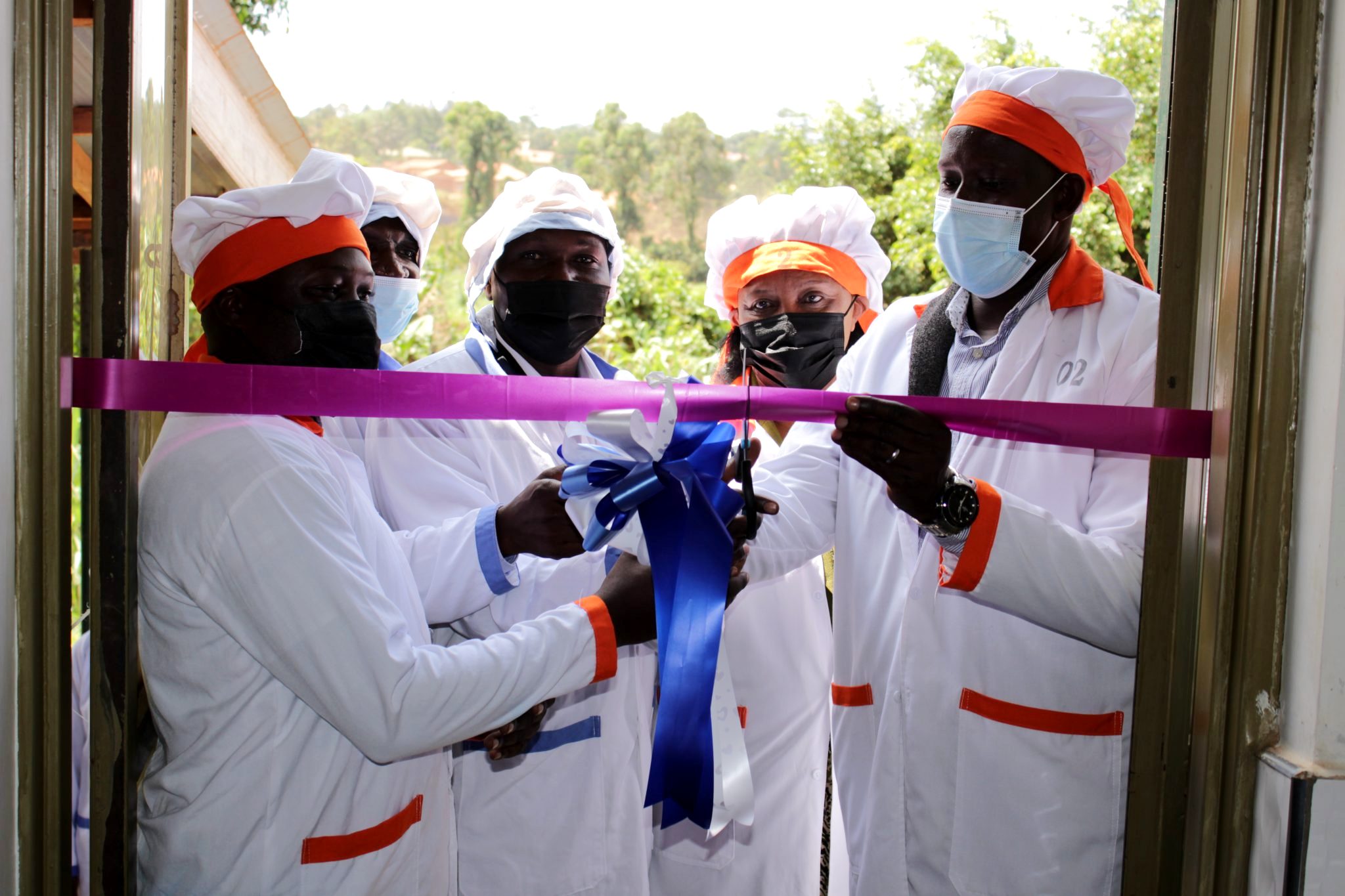
Makerere University College of Agricultural and Environmental Sciences (CAES), represented by Dr. Richard Miiro, from the Department of Extension and Innovation Studies on 6th April 2022 commissioned an Orange Fleshed Sweet Potato (OFSP) Puree Processing Unit at Lishe Products Limited in Kasangati, Wakiso District. With support from BioInnovate Africa Programme Phase II Initiative, the College received funding for a project titled: OFSP Puree for Bakery Applications in East Africa for Nutrition, Post-harvest Loss Management, and Youth & Women Economic Empowerment, to work with a private sector entity to operationalize a processing unit that makes bakery and fried foods ingredient from Vitamin A rich OFSP. Lishe Products Limited was the private sector partner selected to host the processing unit after competitive scrutiny, although Makerere University takes responsibility for the technical assistance, research and training components in the project. Partner companies/institutions included: Euro Ingredients Kenya – PI; International Potato Centre Kenya – Co-PI, Hawassa University Ethiopia, Makerere University Uganda, and Women’s Bakery – Rwanda.
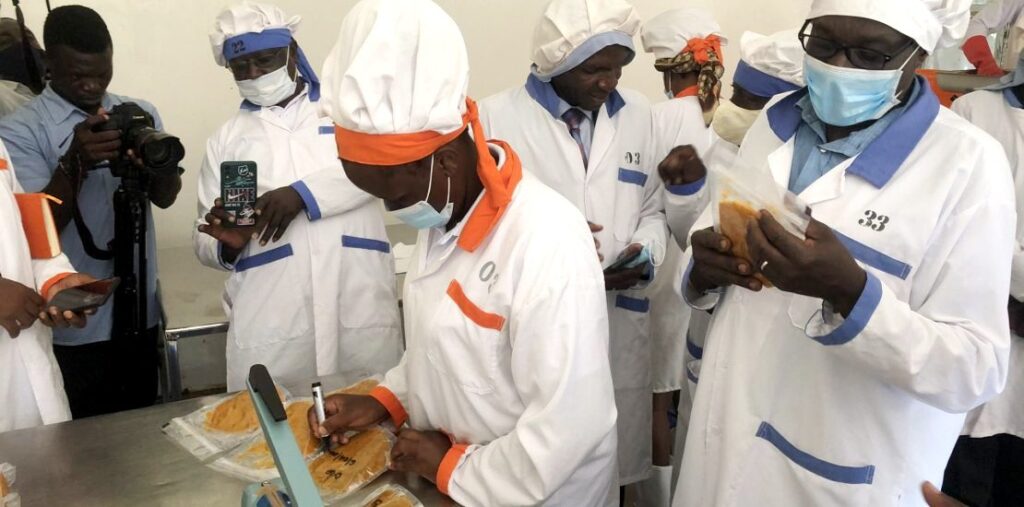
The OFSP Puree project started in 2018 and ended on 30th March 2022. The overall goal of the project was to contribute to improved nutrition and incomes in Uganda, Ethiopia, Tanzania, Rwanda and Kenya (consortium countries) through a profitable and vibrant OFSP-based food value chain, and to promote the commercialization of Orange-fleshed Sweet potato (OFSP) puree products through demand creation, value addition and processing in baked and fried bakery products.
Specific objectives included:
- Increasing the productivity and production of OFSP among smallholder farmers linked to the processing activities in select regions of consortium countries
- Establishing OFSP puree processing factories in Uganda, Tanzania, Rwanda, and Ethiopia
- Developing market chains for OFSP-puree based bakery food products in consortium countries
- Piloting shelf-stable (12-24 months) OFSP puree for use in bakeries, culinary (coffee shops, hotels and restaurants) and ready to eat food formulations in Kenya using hot fill thermal processing technology
In his remarks, Dr. Richard Miiro, the Country Project Team Leader appreciated BioInnovate Africa for funding the project. He expressed gratitude to Prof. Barnabas Nawangwe, Vice Chancellor of Makerere University and the entire CAES leadership for trusting them with the project, and Lishe and other partners for the job well done during the project implementation process. According to Dr. Miiro, the main aim of the OFSP project was to promote commercialization of the Orange fleshed potatoes developed by Ugandan scientists as well as establishing a Puree processing factory. OFSP Puree is a solution to Bakery Applications in East Africa: For Nutrition, Post-harvest loss management and youth & women Economic Empowerment. “Sweet Potato Puree is an ingredient used in chapatti, bread, cakes and can be used in juice making to reduce the cost of production and enhance quality,” he said.
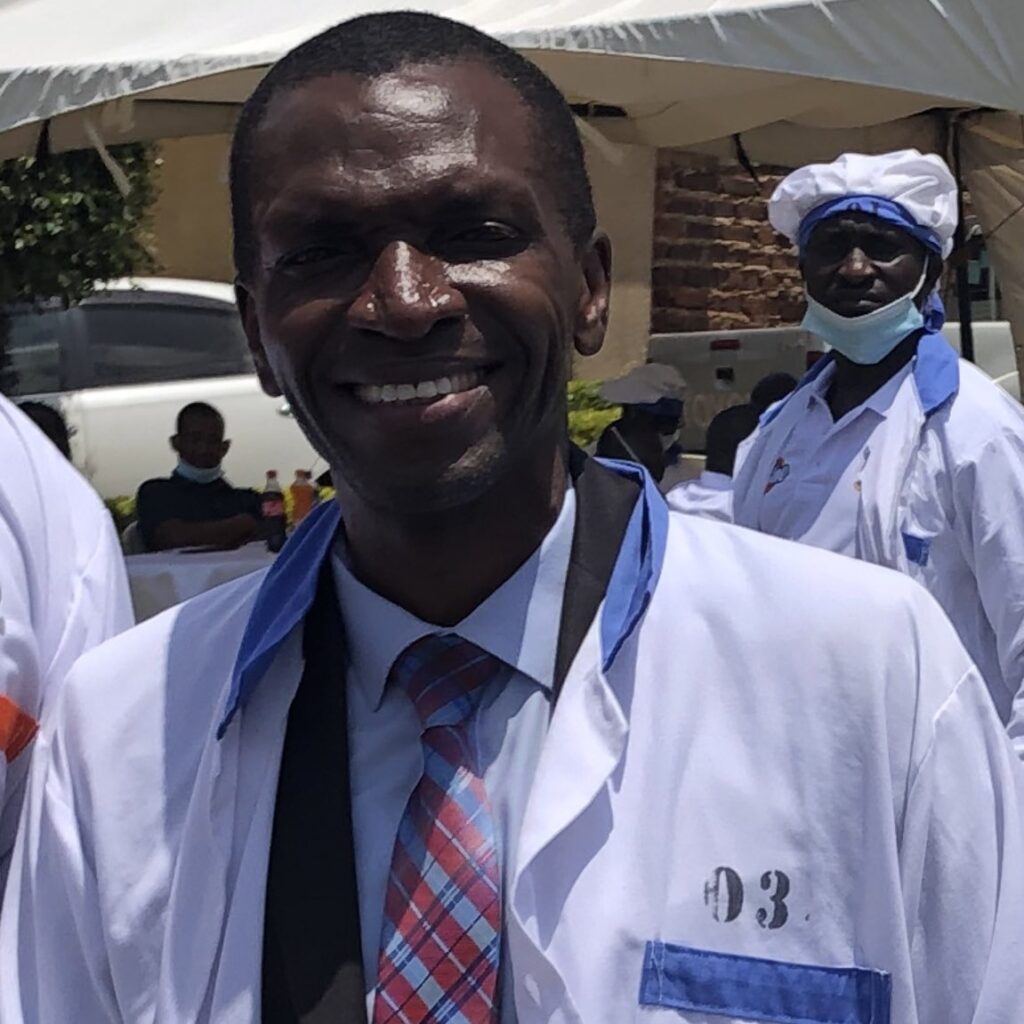
The Chief Guest, His Worship Muwonge Tom, Mayor Kasangati Town Council congratulated Makerere University, partners and Lishe Products Limited upon the achievement. He appreciated BioInnovate Africa and Makerere University for considering them and promised to team up with residents in the bakery business to promote puree.
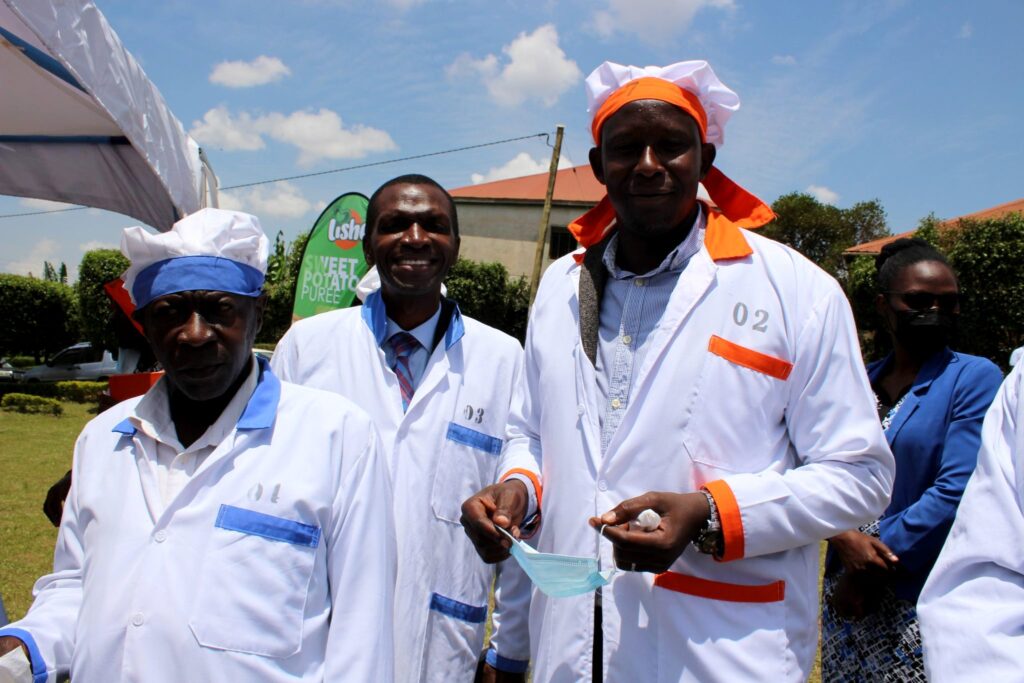
The Principal College of Agricultural and Environmental Sciences was represented by Dr. Okello Ongom, Director Makerere University Agricultural Research Institute Kabanyolo (MUARIK) who extended appreciation to BioInnovate Africa for funding the research initiative, and the Puree project team for the innovation. He also acknowledged the contribution of the project team towards transforming Makerere into a research-led University as per the 2020-2030 Strategic Plan.
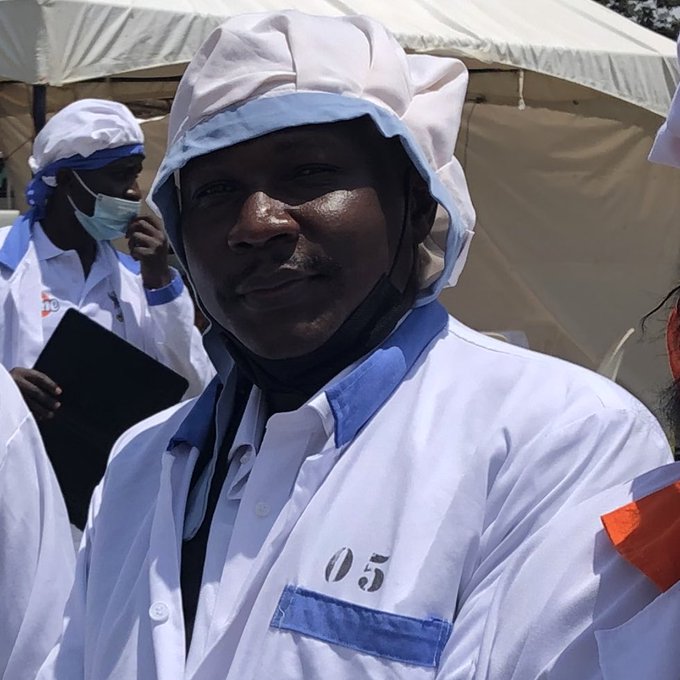
In her remarks, Ms. Sonia Mwandime, Director Lishe Products Limited thanked BioInnovate Africa and Makerere University for giving her the opportunity to host the Processing Unit at her business premises. “Without the support of Makerere University, we wouldn’t get this,” she said. In collaboration with Makerere University, Lishe Products Limited produces 250kgs of puree. Puree is a gluten-free product used in Chapati, bread, porridge, food, juice and fried products. You do not have to add sugar since the potatoes are already sweet. 700 grams of puree when added to 1 kg of wheat flour can yield 45 chapati as compared to 35 chapati got without adding puree.
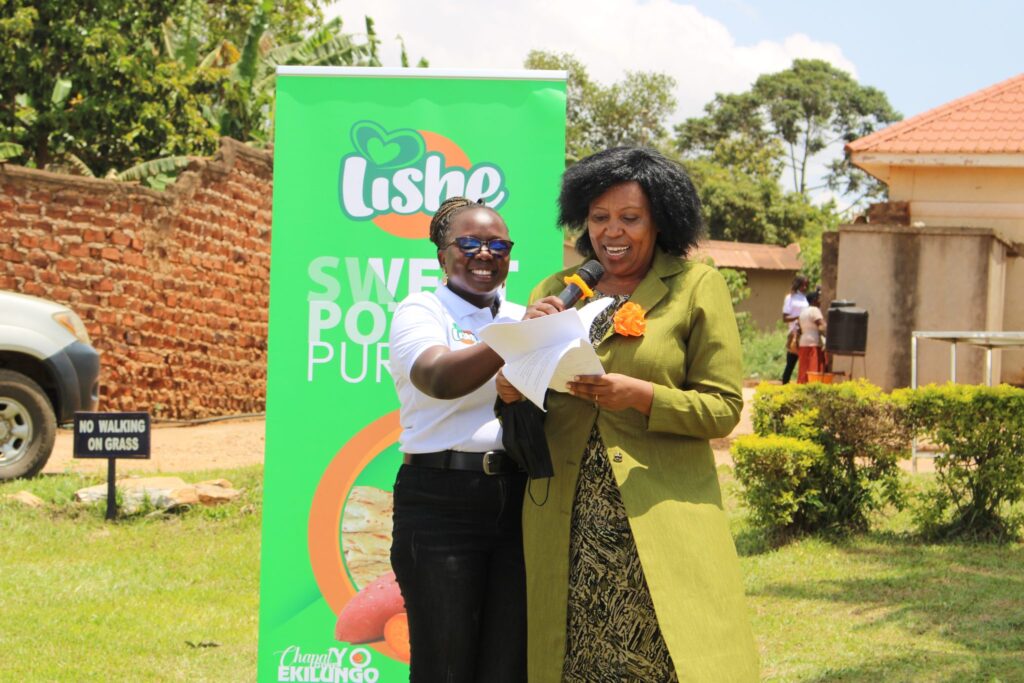
Mr. Kabagambe Stephen from Uganda Chamber of Commerce applauded Makerere University for championing business incubation in the country. “Puree innovation is in line with the current government priority programmes under the National Development Plan (NDP III) and its associated with the Parish Development Model,” he noted. According to Mr. Kabagambe, prices of wheat are already high and with these substitutes, it will not only increase production but also address the market challenges. He cited the health benefits of puree and the need for Uganda Chamber of Commerce together with quality assurance bodies to assist such business initiatives to grow.
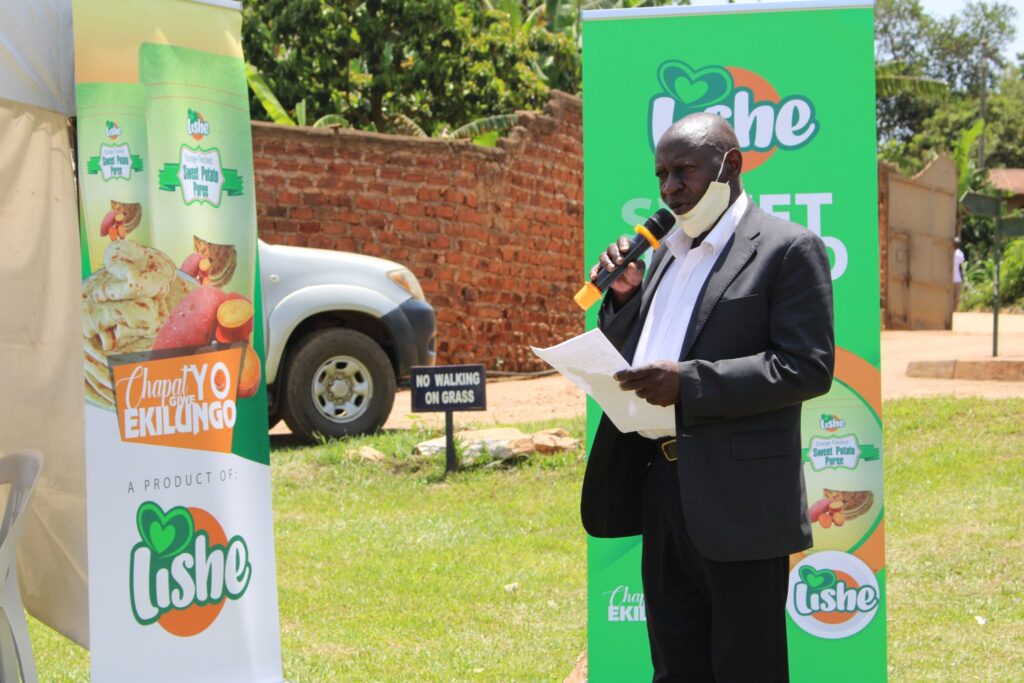
Mr. Antonio Magnagi, Jonisa Bakery noted that there are significant improvements in bakery products when mixed with puree. “Puree changes the physical appearance of Bakery products & increases profits. It increases profit margins compared to the products baked without puree.” Mr. Magnagi commended Makerere University for the partnerships geared towards improving livelihoods.
According to Mr. Kwikiriza Norman, CIP Nairobi, Puree is a good substitute for wheat, promotes food security, and nutritious with Vitamin A.
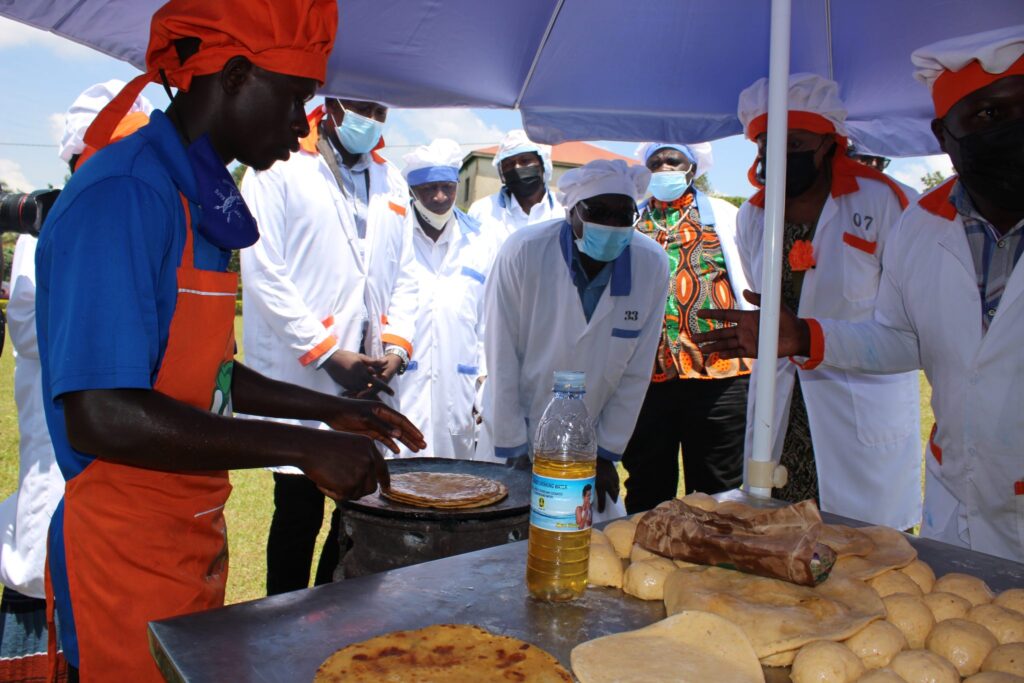
Phases of project Implementation
Phase 1: Developing a commercially viable prototype. EIL (Euro Ingredient Limited) has OFSP puree products prototypes and equipment designs ready to be piloted in East Africa
Phase 2: Preparatory period. EIL will work in Ethiopia, Rwanda, Tanzania, and Uganda with partners to identify key OFSP puree products for their markets. EIL will work on equipment, factory design, and food product development. CIP and university partners will conduct consumer acceptance and willingness to pay, as well as gender and nutrition impact studies.
Phase 3: Start-up period. The puree factories will be established in Ethiopia, Tanzania, Uganda, and Rwanda by OFSP farmers engaged in CIP projects and start producing OFSP varieties. OFSP puree bakery products will be launched and promoted in consortium countries for rapid uptake.
Phase 4: Shelf-Stable OFSP puree trials in Kenya: In Kenya, the OFSP puree bread value chain has been successfully operating over the past three years with the involvement of CIP, Organi Limited, Euro-Ingredients, and Tuskys supermarkets. An OFSP puree processor in Homa Bay county (Organi Limited) makes puree and supplies frozen puree to Tuskys and Naivas Supermarket bakeries in Nairobi.
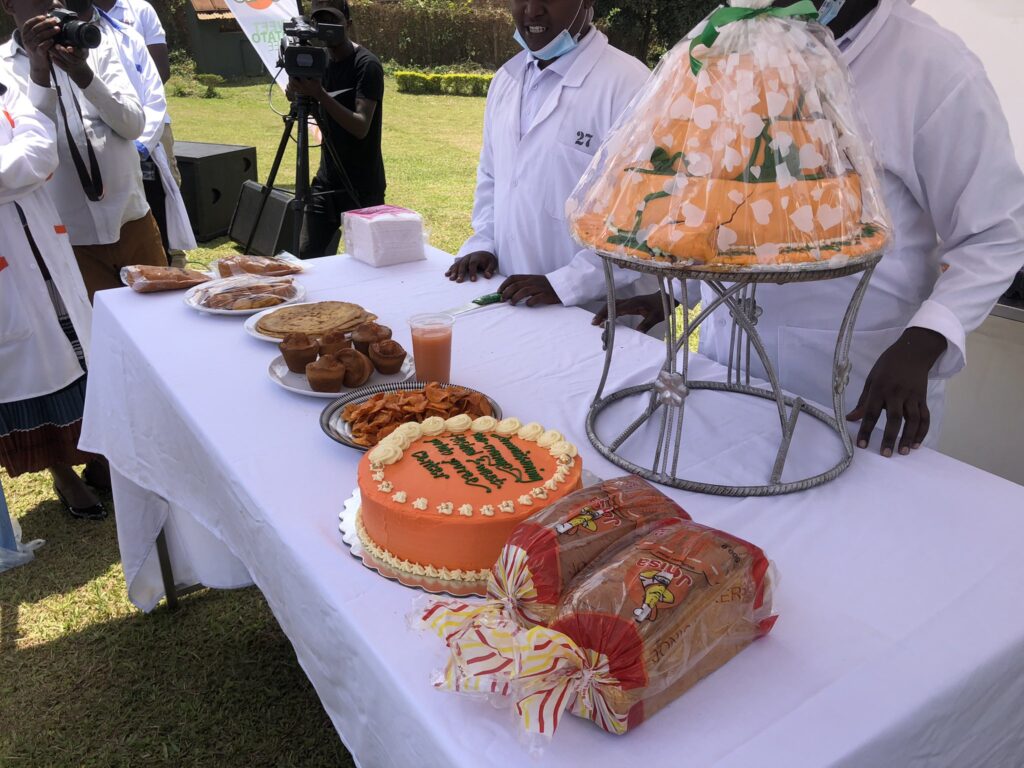
OFSP Puree Project Beneficiaries
The direct beneficiaries of the project are to be mostly OFSP smallholder women farmers (15,000 targeted) in consortium countries, since most of the sweet potato production is carried out by women. They, and their families will benefit in the following ways:
- OFSP women smallholder farmers in consortium countries will directly benefit through creation of markets for the OFSP fresh roots and hence income.
- Smallholder farmers’ post-harvest losses from OFSP will be significantly reduced because of increased marketing opportunities from OFSP puree processors.
- Youths and women in Ethiopia, Rwanda, Uganda and Tanzania will be economically empowered.
- Street vendors, informal bakers, rural bakeries, food outlets, restaurants will have access to a shelf-stable, nutritious, affordable and versatile ingredient and a steady income for their families.
- In addition, indirect beneficiaries will be the urban and rural consumers who will have access to nutritious and healthier bakery products compared.
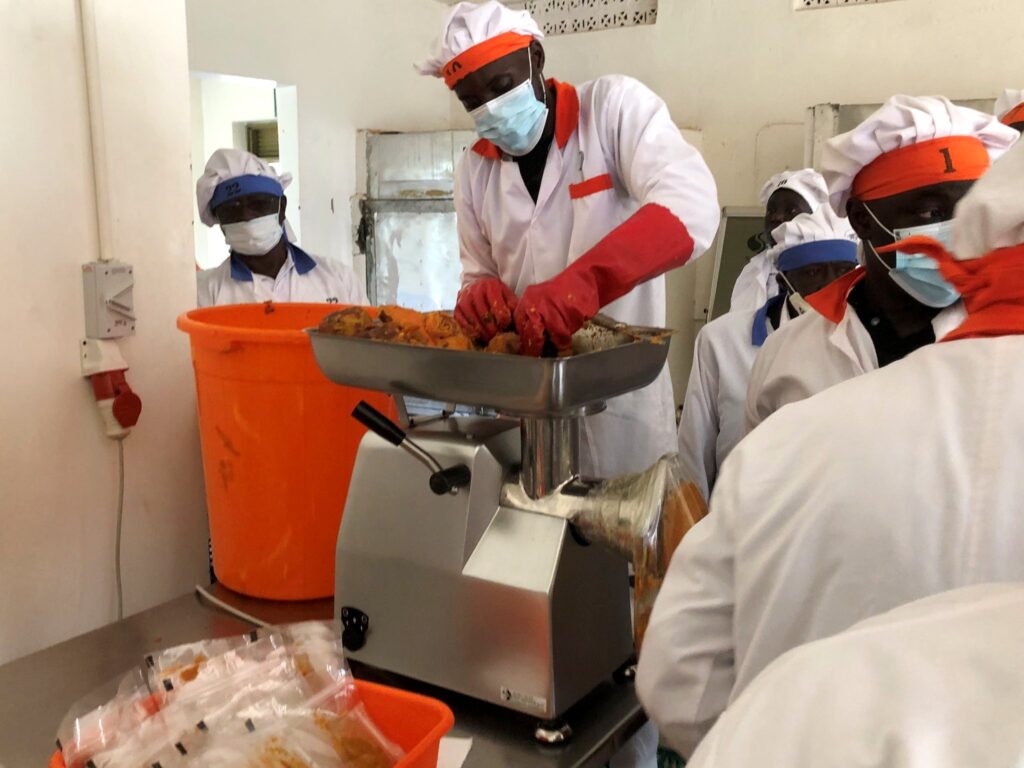
OFSP Puree Project Key Outputs
- Over the project period the key output has been producing OFSP puree at pilot level starting the month of September 2021.
- Prior to this, a pilot survey of “Consumer and market survey of bakery ingredients, products and fried foods in Kampala was carried out.
- Staff at Lishe received training on business readiness and they developed a business model canvas.
- A business acceleration coaching has also been provided by Growth Africa to staff of Lishe products Ltd.
- Conducted a laboratory study to determine the best way to preserve OFSP Puree using chemical preservatives
- Worked out a procedure for industrial scale application of preservatives into OFSP puree.
- Initiated on HACCP training for Lishe Staff
- Initiated and have guidance from UNBS in the process of getting the Q mark
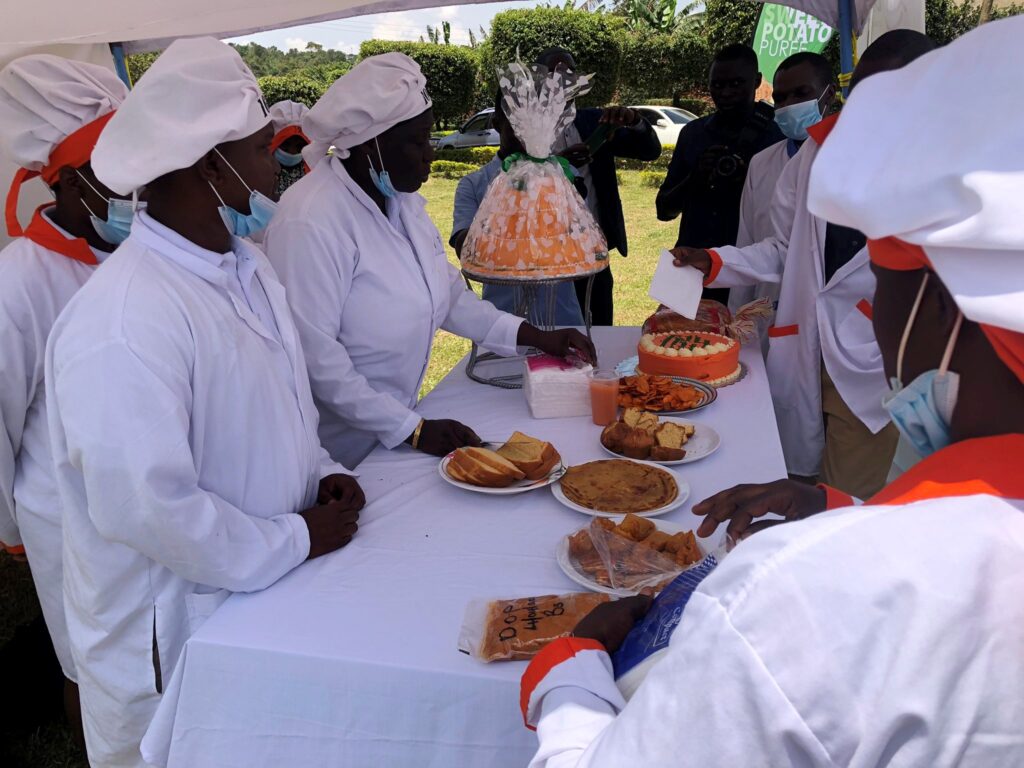
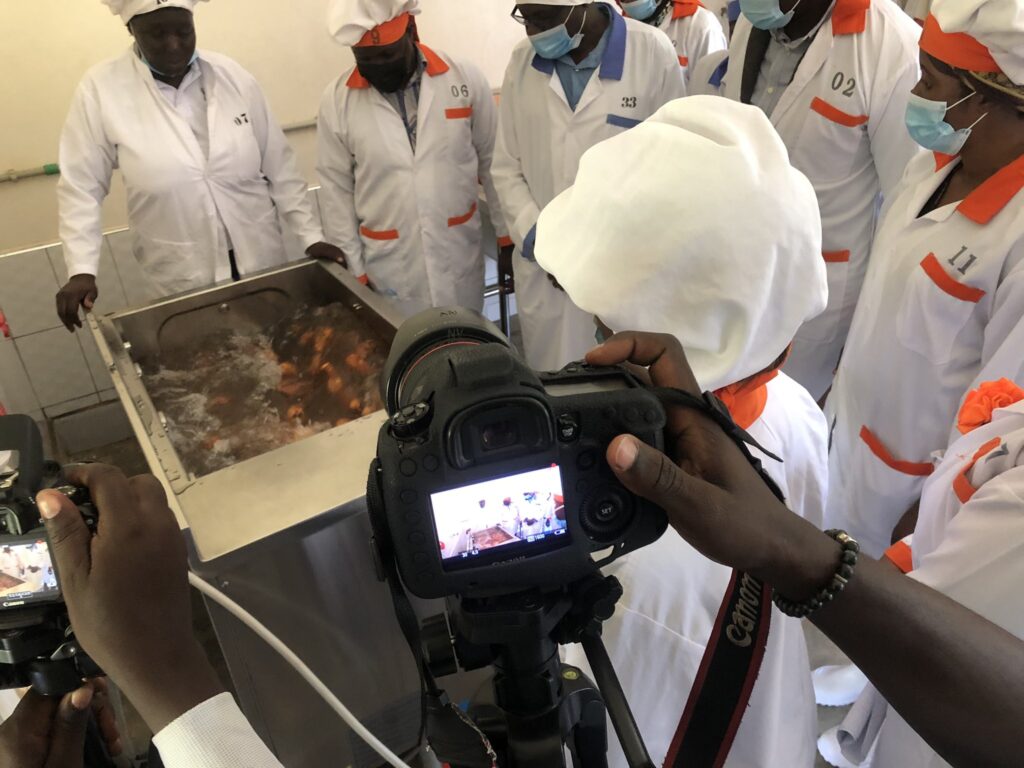
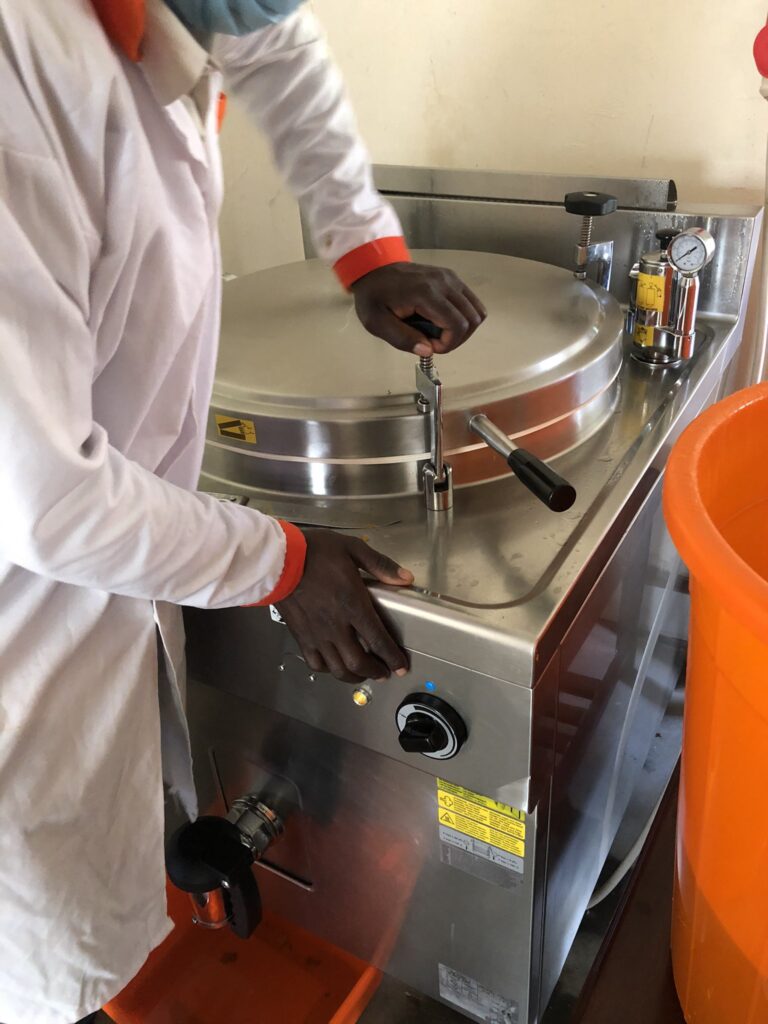
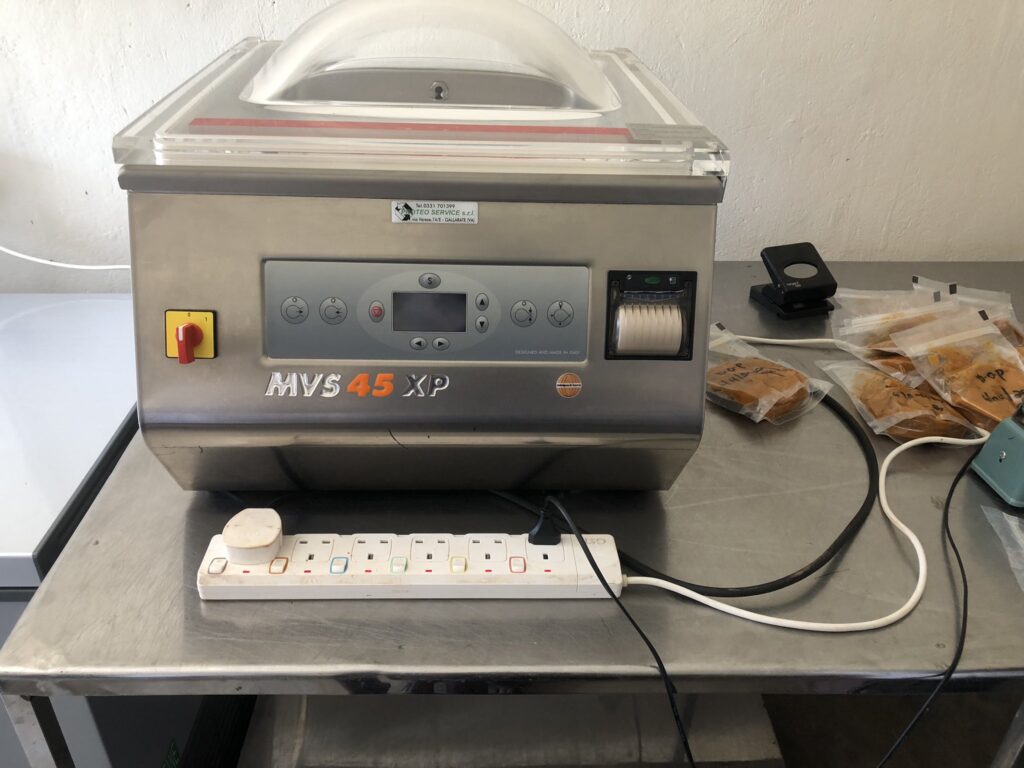
You may like
-
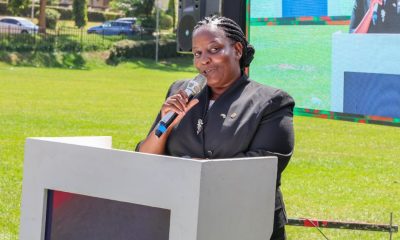

Emorimor Calls for Makerere to Upgrade Parenting Course
-
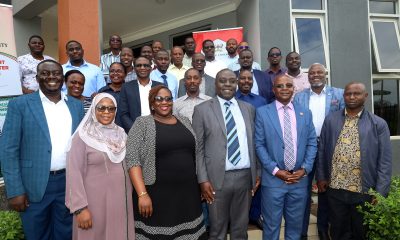

Uganda Deepens Economic Governance with Training on Regulatory Cost-Benefit Analysis
-
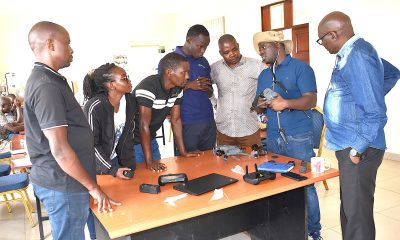

NbS4Tea Project Team Makes Great Progress, Deploys Drones for Data Collection
-


UVCF Makes Case for HEAC Programme
-


Mastercard Foundation Board pays its inaugural visit to Makerere University
-
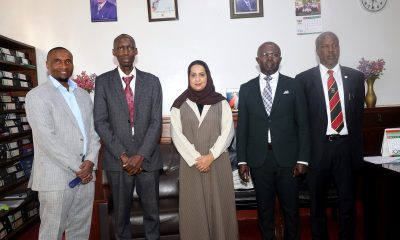

Mak CEES discusses partnership with King Salman Global Academy for the Arabic Language
Agriculture & Environment
NbS4Tea Project Team Makes Great Progress, Deploys Drones for Data Collection
Published
6 days agoon
June 24, 2025
****Funded by the Danish Fellowship Centre under Denmark’s Ministry of Foreign Affairs, NbS4Tea is a five-year initiative aimed at enhancing climate resilience and tea productivity in Uganda.
Launch of drones for data collection
The Nature-based Solutions for Tea (NbS4Tea) project has registered a significant milestone with the successful deployment of drones to improve environmental and agricultural data collection.
On 19th June 2025, the project team officially launched the drones at the Rwebitaba Tea Research Centre in Kyenjojo District, the project’s main research hub. The launch event included hands-on training sessions by Mr. Timothy Mutungi, a certified Remote Sensing Drone Pilot. Mr. Mutungi provided detailed instruction on drone operation, safety procedures, and data acquisition techniques specifically tailored to the project’s goals. The training was attended the core NbS4Tea researchers as well as students supported by the project.

By utilizing drone technology, the team will be able to capture high-resolution imagery and gather critical environmental data across vast tea-growing areas. This will enable more precise assessments of biodiversity, soil health, water use, and overall ecosystem services. The valuable insights generated will guide the development of sustainable, nature-based agricultural practices with the potential for widespread adoption throughout the tea industry.
About the NbS4Tea Project
NbS4Tea is a five-year initiative aimed at enhancing climate resilience and tea productivity in Uganda. Funded by the Danish Fellowship Centre under Denmark’s Ministry of Foreign Affairs and led by Dr Emmanuel Arthur from Aarhus University, the project is being implemented through a consortium of Ugandan and Danish institutions namely: Makerere University, the National Agricultural Research Organization (NARO), Uganda, Uganda Tea Association, Aarhus University, Denmark, and Kick-start International.

The primary objective of the project is to sustainably close the tea yield gap in Uganda by developing research-driven, nature-based solutions that enhance the climate resilience of tea production systems. This involves identifying climate-resilient tea varieties, integrating tea prunings and banana by-products, utilizing nitrogen-fixing agroforestry trees, and improving irrigation management. The approach emphasizes socio-economic feasibility, capacity building in research, and a market-oriented, multi-stakeholder collaboration to ensure both environmental and economic sustainability.
At Makerere University, the project is coordinated by Dr Alex Nimusiima from the Department of Geography, Geo-Informatics and Climatic Sciences at CAES. Other Project members are; Dr Grace Nakabonge from the Department of Forestry, Biodiversity and Tourism; Dr Prossy Nakawuka from the Department of Agricultural and Bio-systems Engineering; Dr Twaha Ali Basamba from the Department of Agricultural Production; and Dr Alice Turinawe from the Department of Agribusiness and Natural Resource Economics.

Specific objectives
- Identify and quantify climate change impacts on tea yield and quality based on historical and newly obtained data and novel data mining methods.
- Screen, select and recommend tea varieties adapted to abiotic (drought and heat) and biotic stresses (diseases and pests).
- Develop new knowledge on the potential of local waste biomass (tea prunings, banana pseudostems and peels) as soil amendments- mulch, compost, biochar, to recycle nutrients, improve soil fertility, increase carbon sequestration and alleviate drought.
- Reveal NbS through agroforestry combined with organic mulch, irrigation and resilient tea varieties that increase biodiversity and tea yield.
- Innovate new methods to enhance tea production under climate change through rainwater harvest and climate-smart irrigation infrastructure.
- Empower vulnerable groups (women, youth, and people with disabilities) in tea production and processing to ensure multi-actor involvement and socio-economic benefit outreach of the proposed NbS in tea cultivation and production.
- Identify export market strategies for NbS tea products, aligned with consumer preferences.

Progress thus far
Launched in January 2024, the project, organized in five work packages, has registered significant progress. Each of the work packages listed below supports one PhD student and one Masters’ student. The PhD students are: i) Mr. Adiga Hassan from the Department of Geography, Geo-Informatics and Climatic Sciences at CAES conducting research under work package 1; ii) Ms. Sarah Namayengo from the Department of Forestry, Biodiversity and Tourism conducting research under work package 2; Ms. Vivian Namutebi from the Department of Soil Science and Land Use Management undertaking research on work package 3; Mr. Keneth Chelimo from the Department of Agricultural and Biosystems Engineering conducting his research under work package 4; and Ms. Moreen Asasira from the Department of Agribusiness and Natural Resource Economics focusing on work package 5. The Masters students are: i) Ms. Evelyn Katasi from the Department of Environmental Management at CAES (work package 1), Mr. Vereriano Turyahebwa from Department of Forestry, Biodiversity and Tourism (work package 2); Mr. Ben Okurut from the Department of Soil Science and Land Use Management (work package 3); Mr. Augustine Okot from the Department of Agricultural and Biosystems Engineering (work package 4); and Mr. Augustine Kigozi from the Department of Agribusiness and Natural Resource Economics (work package 5)

Work packages and achievements registered
Work Package 1: Climate change impacts on tea yield and quality – Headed by Dr. Alex Nimusiima
This work package centres on the analysis of historical and projected climate conditions in the study area. It examines how current climate patterns influence tea production, as well as the potential effects of future climate change on tea yield and quality.
Progress
i) A household survey assessing the socio-economic status of tea farmers and the effects of climate variability on their livelihoods has been completed.
ii) The collected data has been cleaned, and the Masters student supported under this work package is currently writing her thesis based on the survey findings.
iii) A historical climate analysis of the study area has been conducted by the PhD student, who is now preparing a manuscript.

Work Package 2: Screening & selecting tea genotypes for resilience to abiotic and biotic stresses – Headed by Assoc. Prof. Grace Nakabonge
This work package focuses on evaluating existing tea genotypes for their resistance to pests and diseases, using chlorophyll fluorescence imaging as a diagnostic tool.
Progress
i) A screen house has been constructed to serve as the experimental site.
ii) Germplasm from two tea varieties is currently being cultivated in the screen house in preparation for the upcoming experiments.
iii) A drone has been acquired to assist in data collection for this work package.

Work Package 3: Evaluation of NbS for climate resilience, higher yield and biodiversity- Headed by Assoc. Prof. Twaha Ali Basamba
This focuses on the characterization of mulch and biochar derived from tea prunings to improve soil health. It also aims to quantify the added value of Nature-based Solutions (NbS) in enhancing tea productivity, promoting climate resilience, and supporting biodiversity.
Progress
- So far, Biochar has been produced from tea prunings and characterized.
- The Masters student supported under this work package is writing his thesis on the results of biochar characterization.

Work Package 4: Innovating smart and scalable irrigation technology for improved tea production- Headed by Dr. Prossie Nakawuka
This work package aims to develop and evaluate smart, scalable irrigation solutions to boost tea production. It focuses on assessing how irrigation impacts tea yield and quality, measuring water use efficiency, and analyzing the economic returns of irrigation practices. Additionally, it explores deficit irrigation and climate-resilient strategies to ensure sustainable tea farming in changing environmental conditions.
Progress
- The irrigation infrastructure is now in place and fully operational at Rwebitaba Tea Research Centre in Kyenjojo District.
- The experimental plots for irrigation experiments are already in place with water pipes.

Work package 5: Socio-economic assessment of tea-agroforestry and selected tea varieties – Headed by Dr. Alice Turinawe
This work package emphasizes co-creation within multi-stakeholder innovation networks to evaluate the economic feasibility and market access of tea agroforestry systems. It also focuses on promoting gender balance and understanding consumer valuation of Nature-based Solutions (NbS) tea from Uganda.
Progress
To date, two co-creation workshops have been successfully conducted and the Masters student under this work package is currently analyzing the workshop results as part of their research.

Expected outputs and outcomes
- Increased tea production, productivity, and biodiversity through the adoption of NbS.
- Increased research and technical capacity of Makerere and R-ZARDI.
- Holistic stakeholder insight on economic feasibility, consumer acceptance and market access strategies, especially for vulnerable groups in the tea value chain.
- Increased job prospects for youth and women in tea production sub-sectors.
- Improved social status and increased incomes of tea farmers, traders, and exporters.
- Improved economic and environmental quality by recycling biomass waste into value-added products dedicated to soil enhancement.
- 4+ high-yielding tea genotypes adapted to drought and heat, diseases and pests.
- 15+ scientific articles, conference presentations.
- Five PhDs and Five MSc degrees.
- Market access assessment and empowerment.

Details on the project: https://news.mak.ac.ug/2024/01/new-caes-project-to-improve-tea-production-in-uganda/
More photos from the event



Agriculture & Environment
New Mak-CAES Project to Spur Green Growth in East Africa
Published
2 weeks agoon
June 13, 2025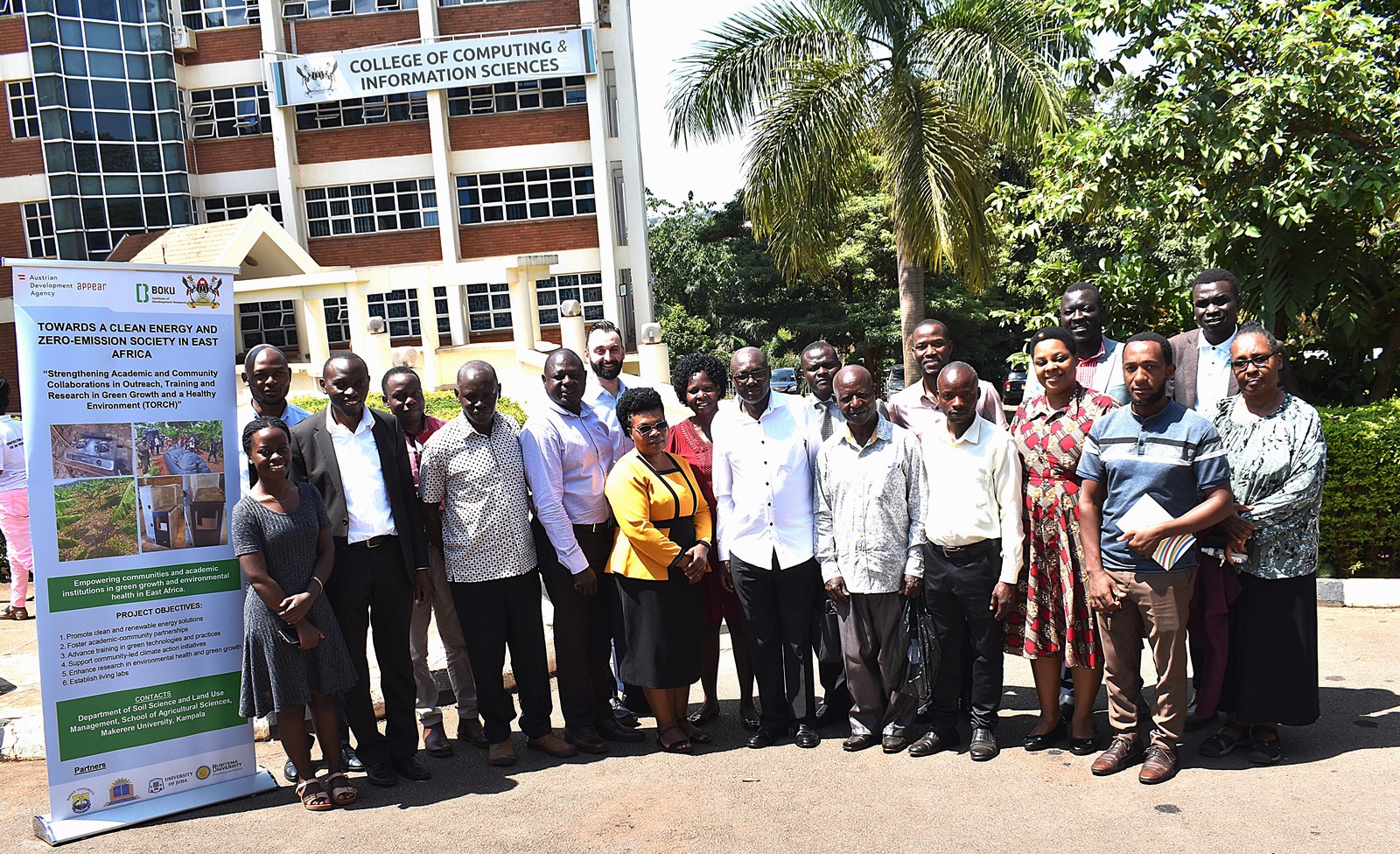
Makerere University, through its Department of Soil Science and Land Use Management at the College of Agricultural and Environmental Sciences (CAES), has launched a new project aimed at fostering green growth and promoting sustainable development across East Africa. This initiative aligns with global efforts to combat climate change and create eco-friendly, low-carbon communities through collaborative research, education, and technology.
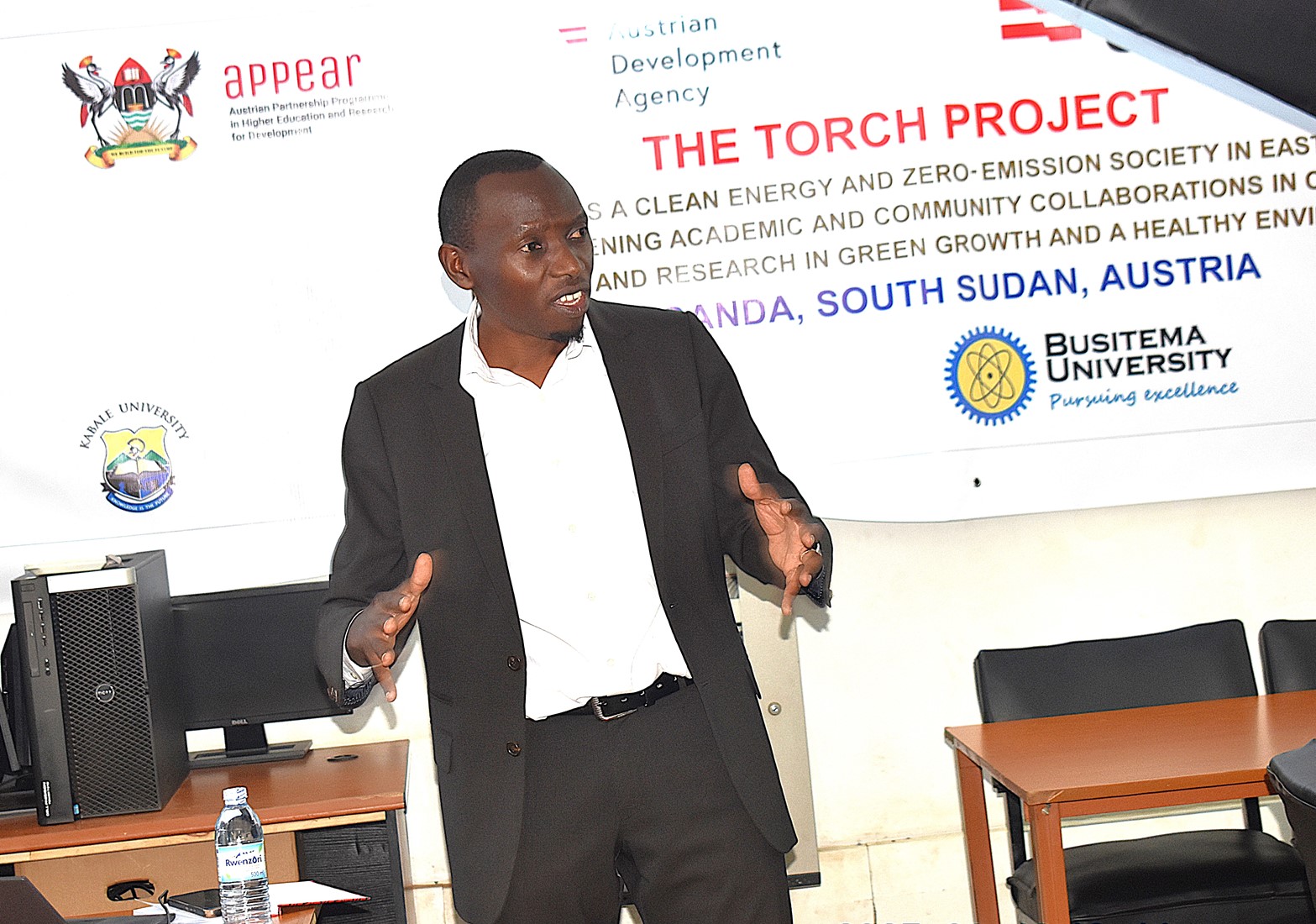
Introducing the TORCH Project: Towards a Clean Energy and Zero-Emission Society
The two-year project, code-named TORCH (Towards a Clean Energy and Zero-emission Society in East Africa), seeks to strengthen cooperation between academia and local communities to promote green growth and environmental sustainability. Funded by the OeAD-GmbH under the Austrian Partnership Programme in Higher Education Research for Development (APPEAR), TORCH focuses on clean energy solutions, carbon emission reduction, and community empowerment through training, research, and co-creation of green technologies.
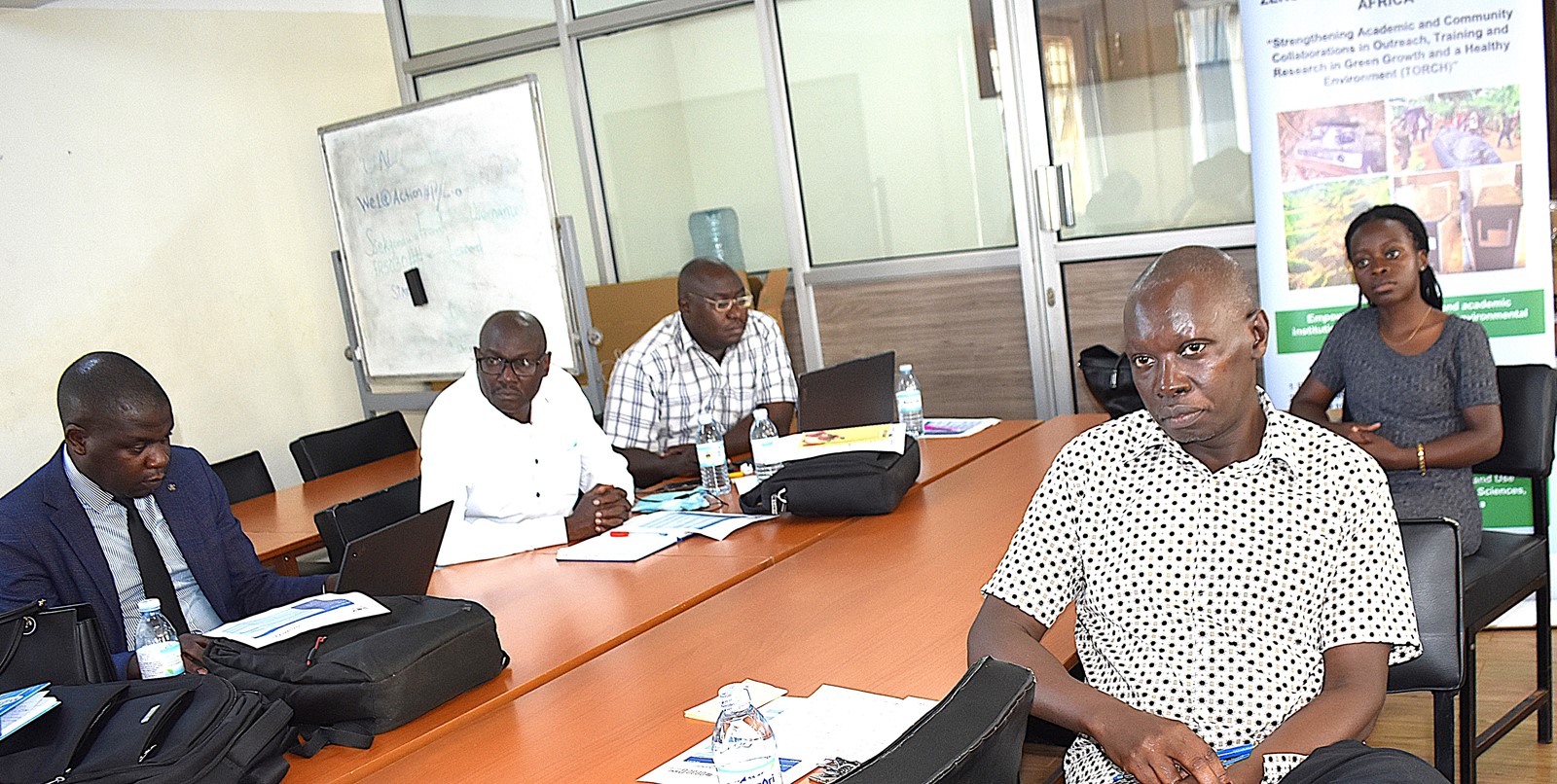
Officially launched by the Principal of CAES, represented by Dr. Paul Mukwaya, Head of the Department of Geography, Geo-Informatics and Climatic Sciences at Makerere University, TORCH builds upon existing East African government policies. The project will implement the innovative concept of living labs, where universities, communities, and stakeholders co-design, co-create, and co-produce affordable, reliable green technologies tailored to local needs.
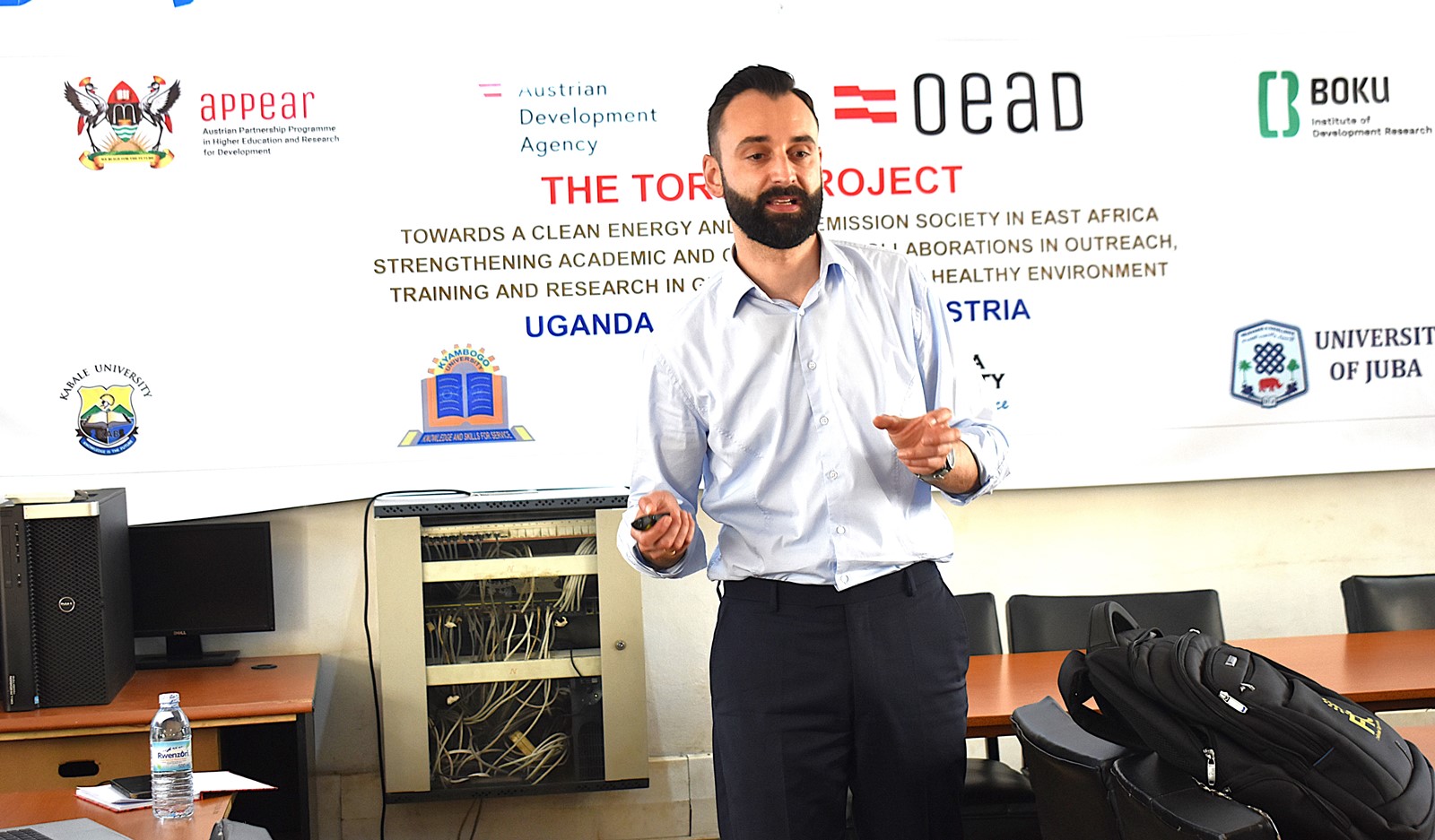
Key Objectives and Activities
TORCH aims to:
- Enhance teaching on green growth by integrating principles into selected academic curricula.
- Establish three living laboratories in Central, South Western, and Eastern Uganda to boost co-creation on energy efficiency and low-carbon emissions.
- Increase human capacity through short courses, field research, and training.
- Empower women in science and technology.
- Promote novel green technologies and support policy transformation.
- Strengthen partnerships among universities in East Africa.
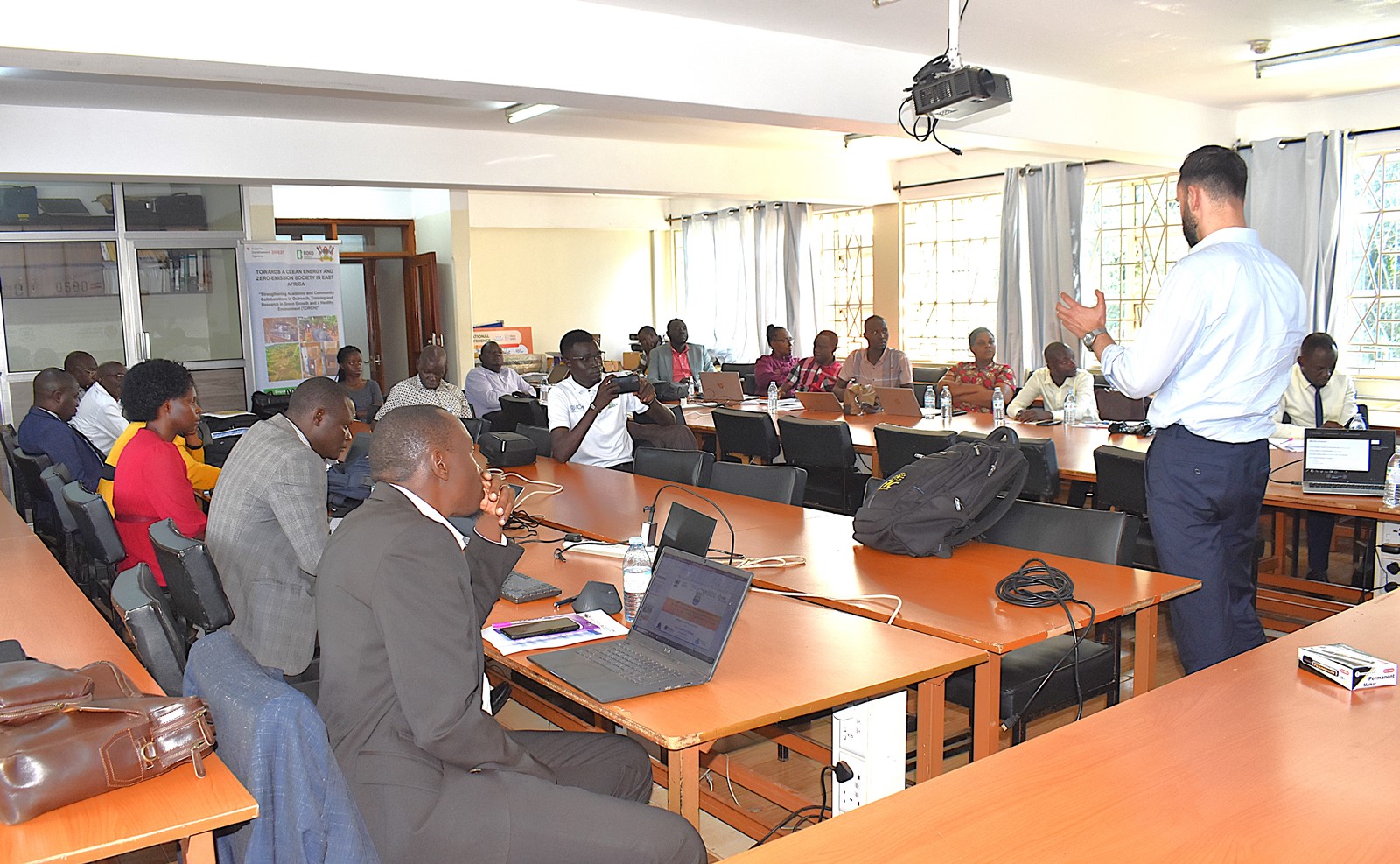
These activities directly contribute to achieving several Sustainable Development Goals (SDGs), including SDGs 4 (Quality Education), 5 (Gender Equality), 6 (Clean Water and Sanitation), 7 (Affordable and Clean Energy), 12 (Responsible Consumption and Production), and 13 (Climate Action), while also reducing health risks and conserving the environment.
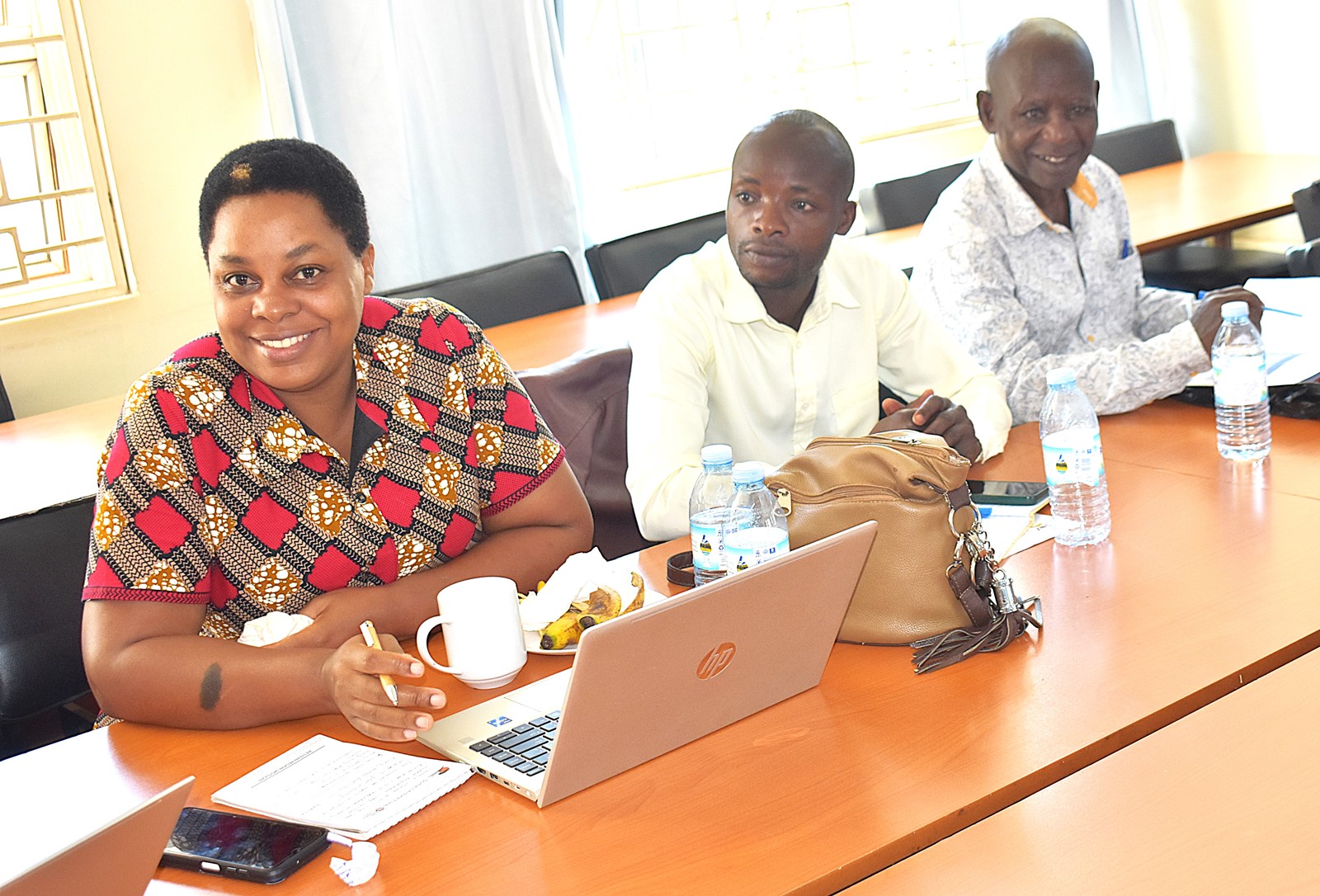
Leadership and Partner Institutions
The overall project coordinator is Dr. Patrick Musinguzi, Lecturer in the Department of Soil Science and Land Use Management at Makerere University. TORCH involves several partner institutions, including: Makerere University (Uganda), University of Natural Resources and Life Sciences, Vienna (Austria), Kabale University (Uganda), Busitema University (Uganda), Kyambogo University (Uganda), and the University of Juba (South Sudan).

Highlights of the Launch Ceremony
During the launch ceremony held in the GIS Lab at Makerere University, and attended by representatives from the partner institutions, Dr. Musinguzi presented an overview of TORCH, outlining key strategies for implementation and expected outcomes. Central to the project’s strategy is the integration of green growth principles into Makerere University’s academic curriculum. This will be formally proposed to the University Management for adoption. Additionally, the project aims to strengthen the university’s research agenda in this critical area. This will involve supporting faculty and student-led research projects and generation of evidence-based insights on green growth to influence policy at both local and national levels. There are also plans to establish three living labs in Central, South Western, and Eastern Uganda to serve as practical hubs for advancing green growth.
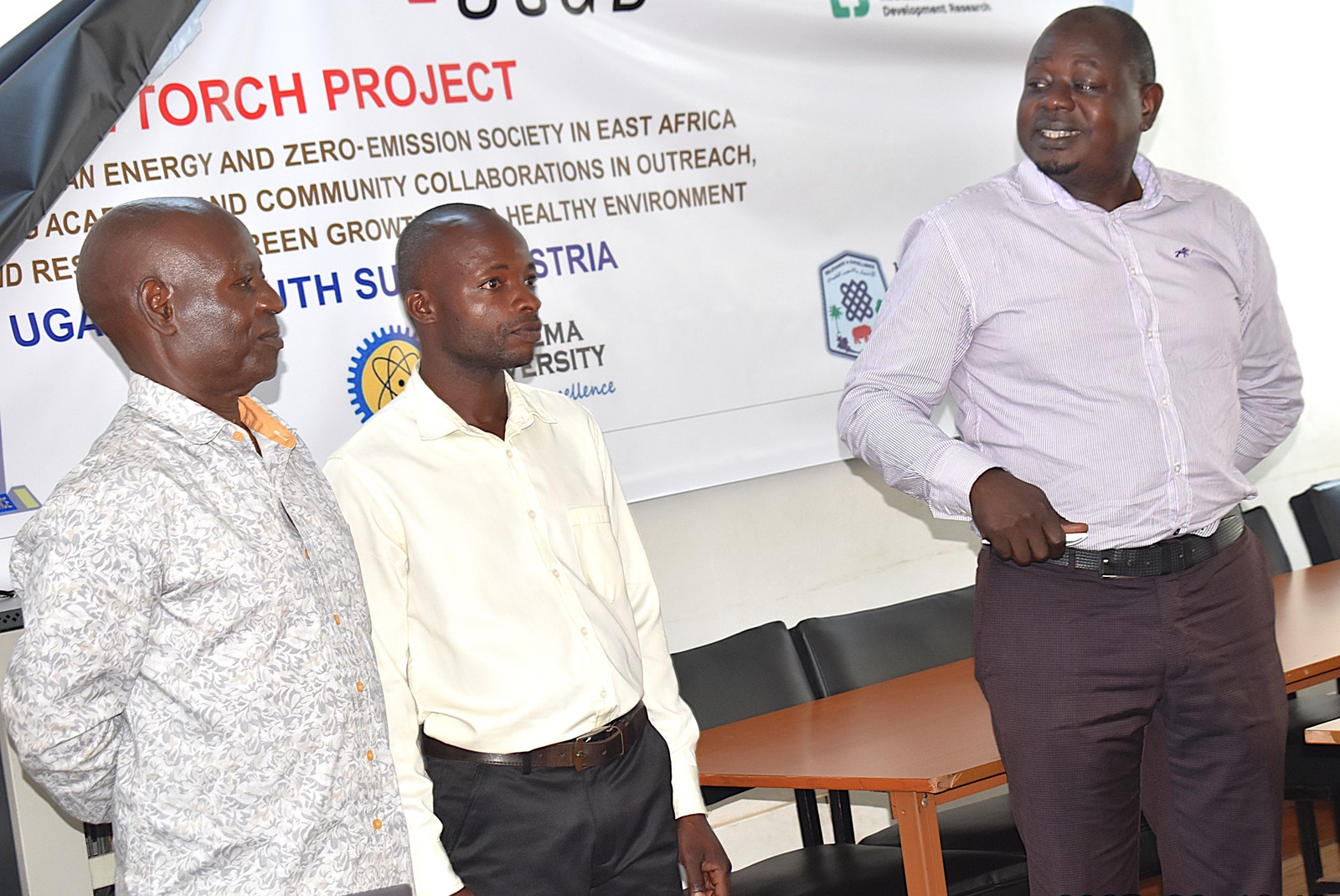
Expert Insights on Community Engagement
In his presentation, Mr. Andreas Bauer from the University of Natural Resources and Life Sciences, Vienna provided valuable insights into the critical role that living labs play in promoting sustainable, green growth. Highlighting practical examples and innovative approaches, Mr. Andreas Bauer emphasized how living labs serve as dynamic platforms for collaboration between researchers, industry stakeholders, and local communities, enabling real-world experimentation and the development of eco-friendly solutions that drive environmental and economic progress.
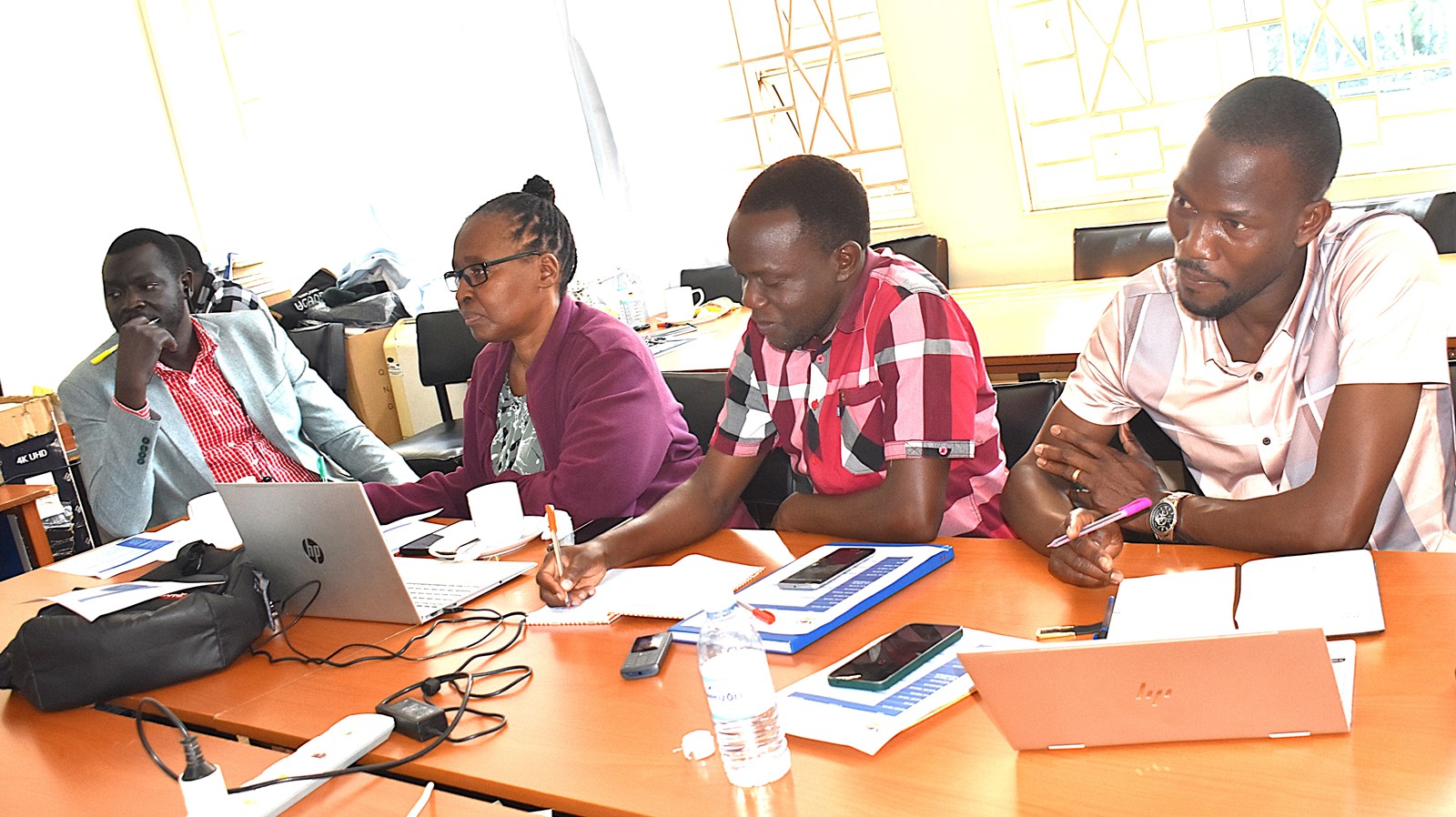
To emphasize the importance of collaboration between local communities and the academia, Mr. Kayanja Susane, a farmer from Kawumu Village in Luweero District, explained that, with guidance and support from the project team, he learned to produce biogas from animal waste -a reliable source of energy that reduces dependence on traditional fuels, subsequently minimizing environmental degradation.
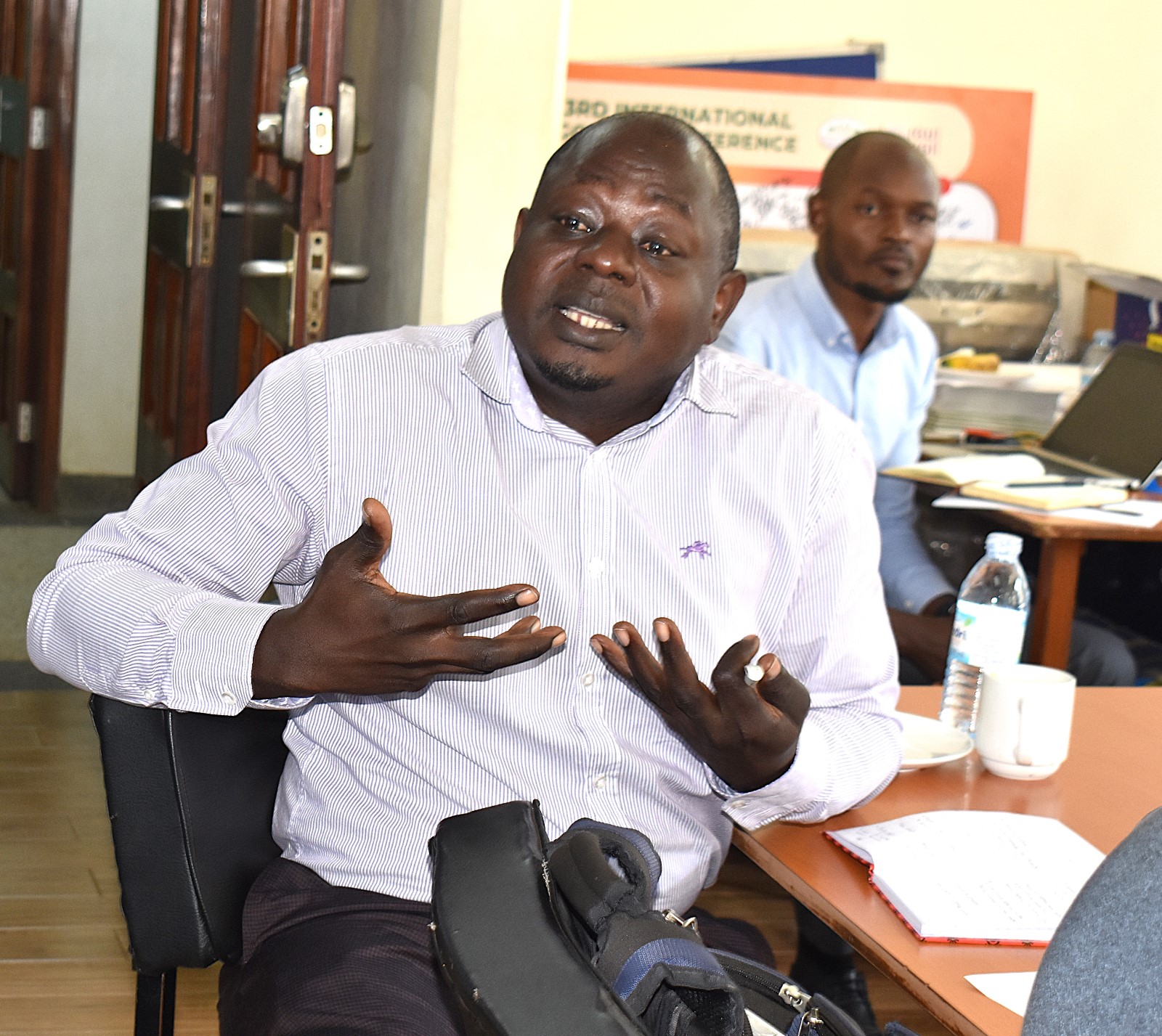
Research Focus
As part of the strategy to guide implementation, the project team brainstormed potential ecological and social indicators of low emissions in homesteads, and proposed several research areas to support green growth. Proposed research areas include:
- Life cycle analysis
- Circular economy practices within homesteads
- Gender integration and the intersection of gender with green growth
- The role of livestock in promoting green growth
- Evaluating the impact of interventions on total emissions
- Barriers to adopting green innovations
- The use of indigenous knowledge in promoting green growth
Addressing the participants, the Principal of the College of Agricultural and Environmental Sciences (CAES), represented by Dr. Paul Mukwaya, Head of the Department of Geography, Geo-Informatics, and Climatic Sciences at Makerere University, commended the project as a timely initiative aligned with the University’s research agenda. He underscored the importance of collaborating with other stakeholders, noting that similar projects have been conducted within and outside Makerere. Dr. Mukwaya called for the adoption of the theory of change framework to ensure the project delivers measurable, sustainable impacts that extend beyond policy briefs and gender mainstreaming, ultimately contributing to lasting green transformation in the region. He expressed appreciation to the project funders for their unwavering support to Makerere University.
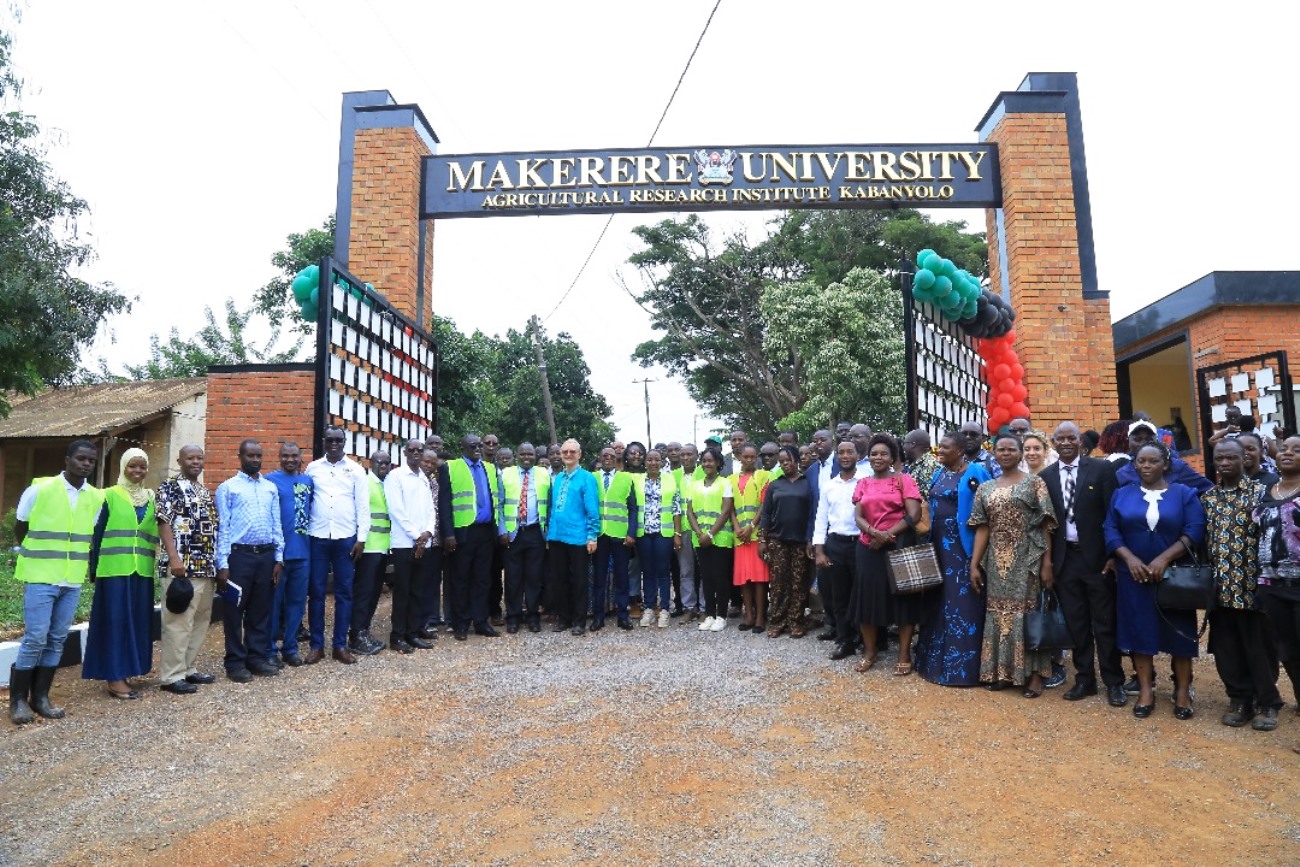
Refurbished gate to boost the institute’s aesthetics, security, accessibility, and sustainability
Makerere University College of Agricultural and Environmental Sciences (CAES) has completed the refurbishment of the main gate at the Makerere University Agricultural Research Institute Kabanyolo (MUARIK). The renovation was carried out by students from both CAES and the College of Engineering, Design, Art, and Technology (CEDAT), under the supervision of their academic mentors.
According to the Principal of CAES, Prof. Gorettie Nabanoga, the revamped gate now truly reflects the spirit of Makerere University and will significantly enhance the institute’s visual appeal, security, accessibility, and sustainability. The refurbished gate was officially commissioned by the Vice Chancellor, represented by the First Deputy Vice Chancellor in charge of Academic Affairs, Prof. Buyinza Mukadasi. The ceremony was attended by the Deputy Vice Chancellor in charge of Finance and Administration, Prof. Winston Tumps Ireeta, alongside CAES staff, students, and partners.
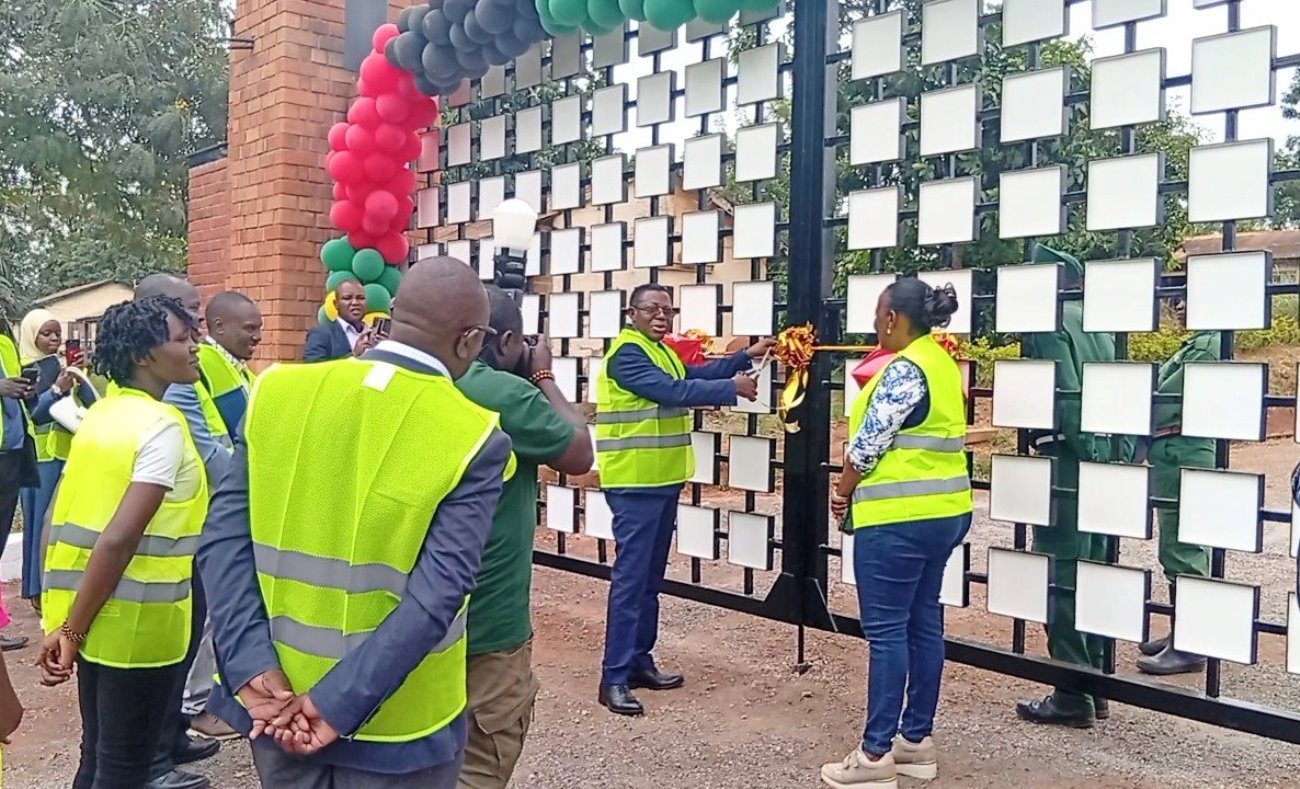
About MUARIK
Established in 1953, MUARIK serves as a hub for numerous research projects and facilities within CAES. It houses centres such as the Makerere University Regional Centre for Crop Improvement (MaRCCI), the Makerere University Centre for Soybean Improvement and Development (MakCSID), the Continuing Agricultural Education Centre (CAEC), the Centre of Excellence in Waste Management, and the Consortium for Enhancing University Responsiveness to Agribusiness Development (CURAD).
Additionally, MUARIK hosts KOICA-funded projects, including a modern layers production unit and a climate-controlled greenhouse for vegetable production. These units operate independently but collectively contribute to MUARIK’s dynamic research environment.
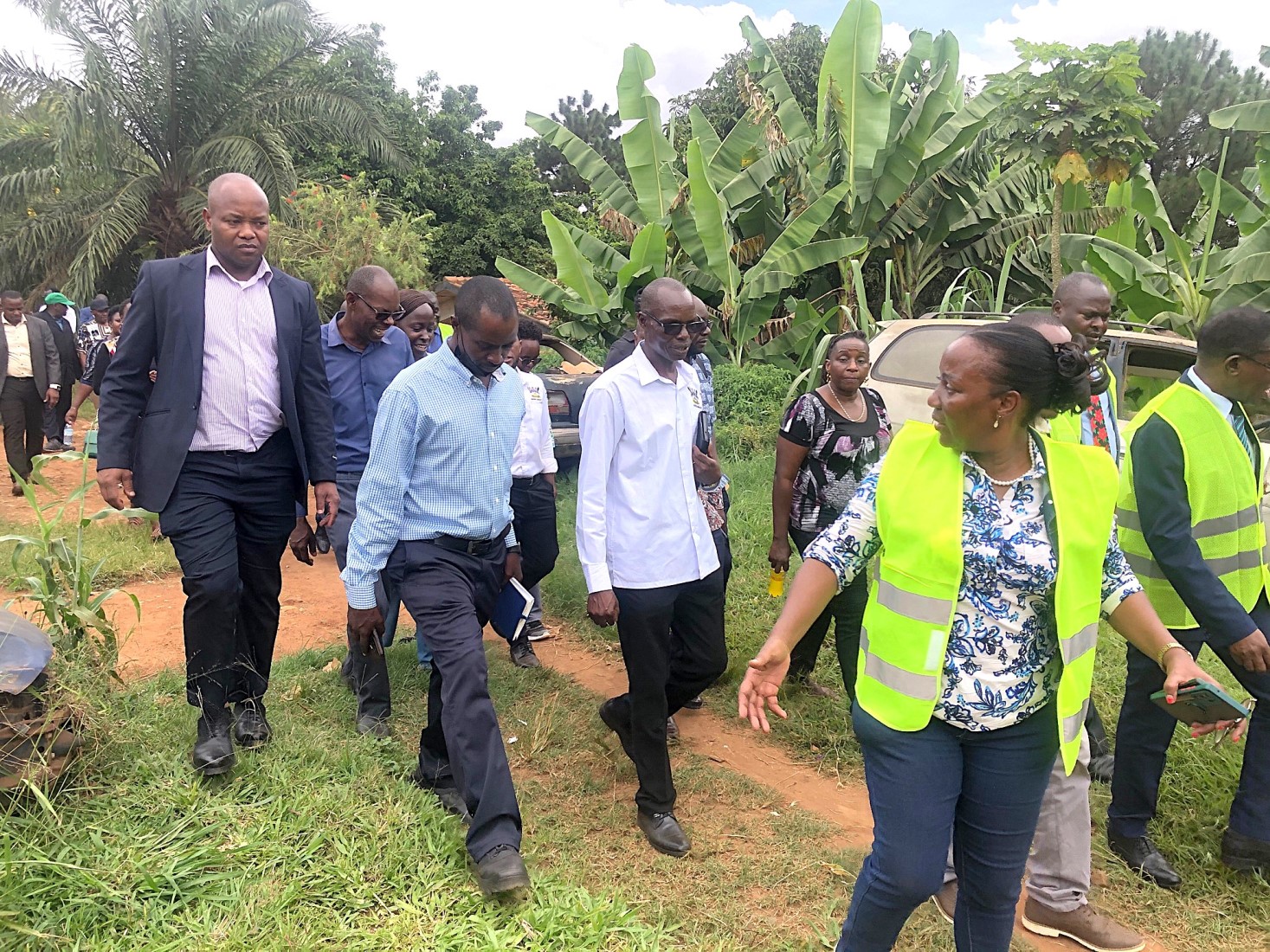
MUARIK also houses research units for the School of Agricultural Sciences (SAS) such as the Biotechnology and Tissue Culture Laboratories, experimental fields, Horticulture and Livestock Units, and the black soldier fly project. It accommodates training and research facilities for the Schools of Food Technology, Nutrition, Bioengineering, and the School of Forestry, Environmental, and Geographical Sciences. It also hosts hostels for both local and international students who stay at the Institute to gain practical experience in production and research under typical farming conditions.
Enterprises and Research at MUARIK
Enterprises at MUARIK include approximately 100 acres of pastures, a dairy farm, feed mill, silage production, poultry unit, piggery unit, banana and coffee plantations, maize and soybean crops, horticulture, goat farming, and the recently revived rabbit unit featuring four breeds: New Zealand White, Chinchilla, California White, and Flemish Giant.
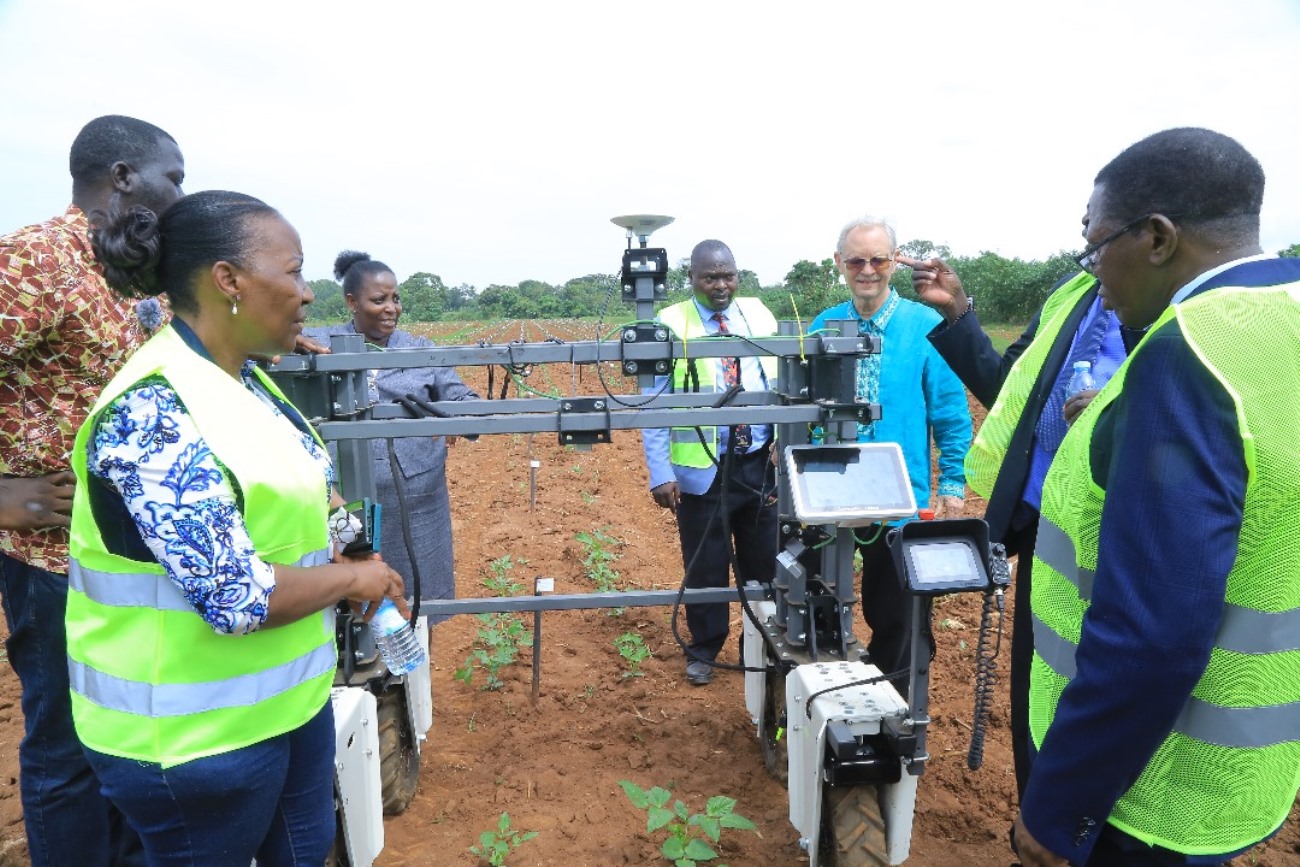
Current research initiatives focus on edible insects and worms as alternative livestock feeds, agroforestry, horticulture, and value addition in food processing. MUARIK maintains a strong partnership with the Uganda Flowers Exporters Association (UFEA), collaborating on the commercial testing of new flower species to diversify Uganda’s flower exports beyond traditional rose bouquets. Collaborative efforts also include identifying native natural enemies to control Chrysanthemum pests, working with UFEA, Wageningen University, breeders, and the National Agricultural Research Organization.
As part of Uganda’s National Agricultural Research System (NARS), MUARIK prioritizes research in biotechnology, tissue culture, plant breeding, improved farming methods, agro-processing, value addition, and marketing.
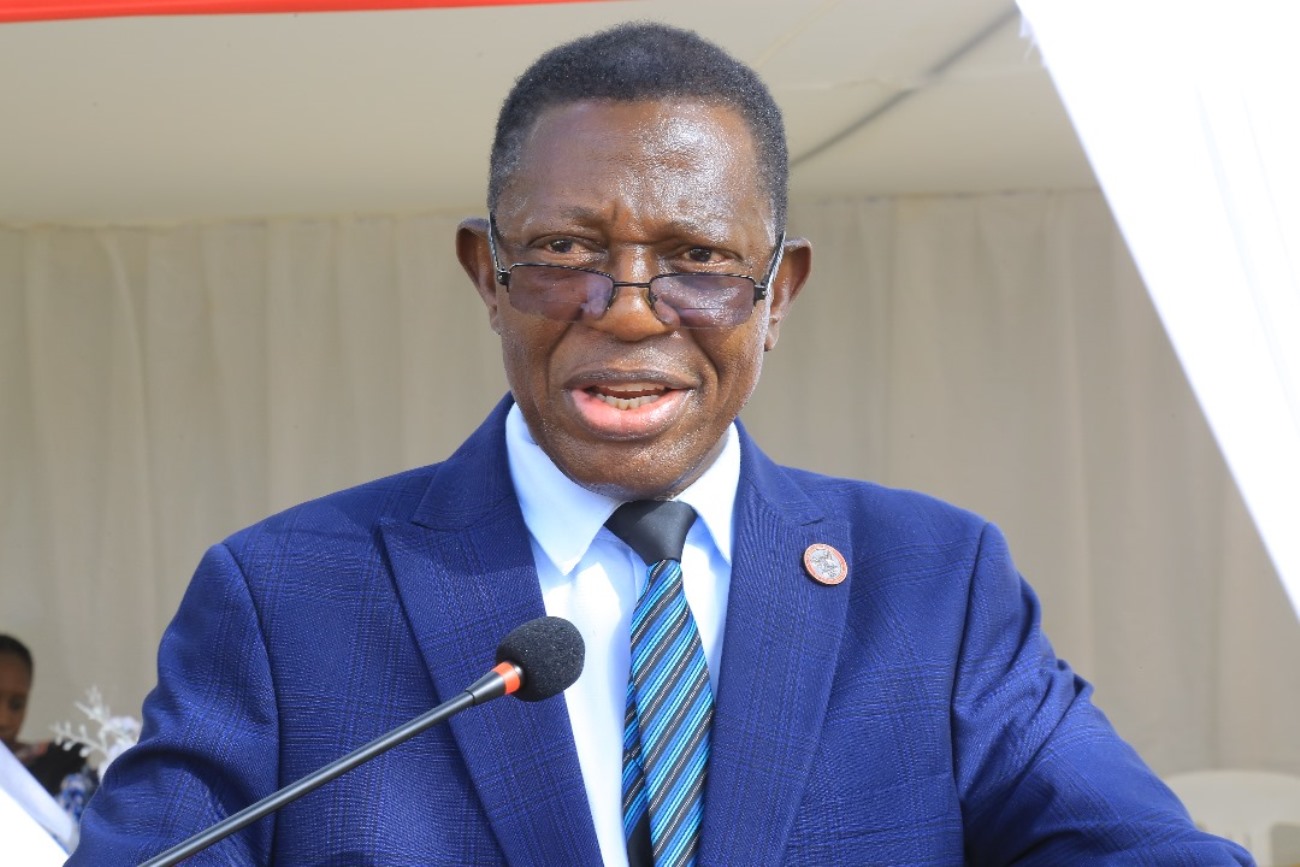
Tour to Assess the Capacity and Condition of Facilities at MUARIK
As part of the commissioning ceremony, the Principal of CAES, Prof. Gorettie Nabanoga, led visitors on a comprehensive tour of the Makerere University Agricultural Research Institute, Kabanyolo (MUARIK). The purpose of the tour was to provide first-hand insight into the institute’s current infrastructure, operational capacity, and ongoing challenges.
During the visit, Prof. Nabanoga highlighted both the strengths and limitations of the institute. While the tour showcased MUARIK’s potential as a hub for agricultural research and innovation, it also brought to light a number of critical issues affecting its functionality. Chief among these is the persistent challenge of land encroachment, which continues to threaten the integrity and sustainability of the institute’s operations.
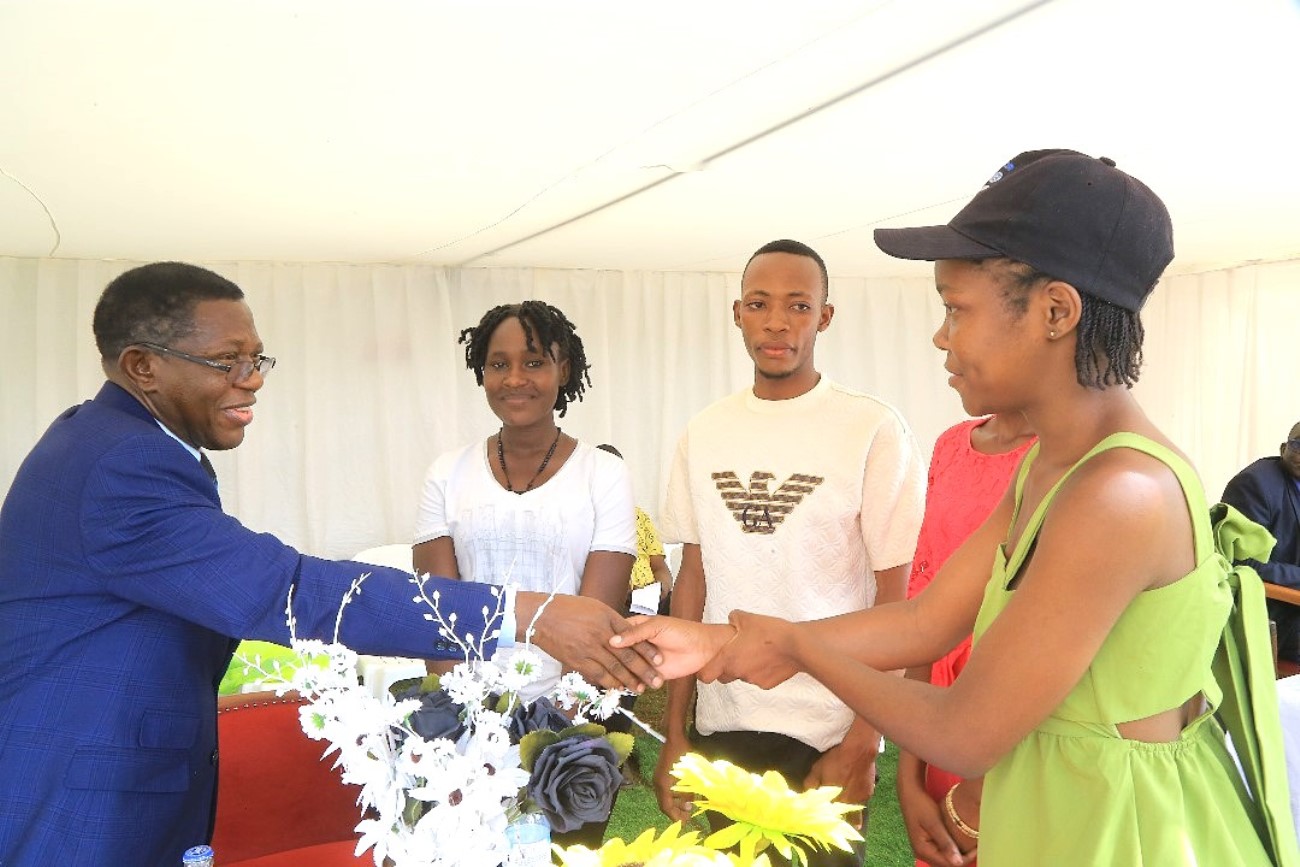
In her remarks, Prof. Nabanoga commended Dr. Cyrus Ongom, the outgoing Director of MUARIK, for his unwavering dedication to safeguarding the institution’s land. She acknowledged his resolute efforts in the face of persistent threats and numerous challenges, emphasizing the vital role he played in preserving MUARIK’s integrity. “This year, we aim to further reposition MUARIK as a leading centre for agricultural innovation and production in the region,”said Prof. Nabanoga. “Our focus will be on strengthening research, fostering partnerships with stakeholders, and enhancing the capacity of our infrastructure to support sustainable and impactful agricultural practices.”
The Principal expressed gratitude to all who have supported the transformation journey of CAES. “As we celebrate our achievements today, we take this moment to recognize and honour everyone who has been part of our transformation journey,” the Principal said. “We are especially grateful to the Vice Chancellor, Prof. Barnabas Nawangwe for his unwavering support, which has been instrumental in driving the College forward.”
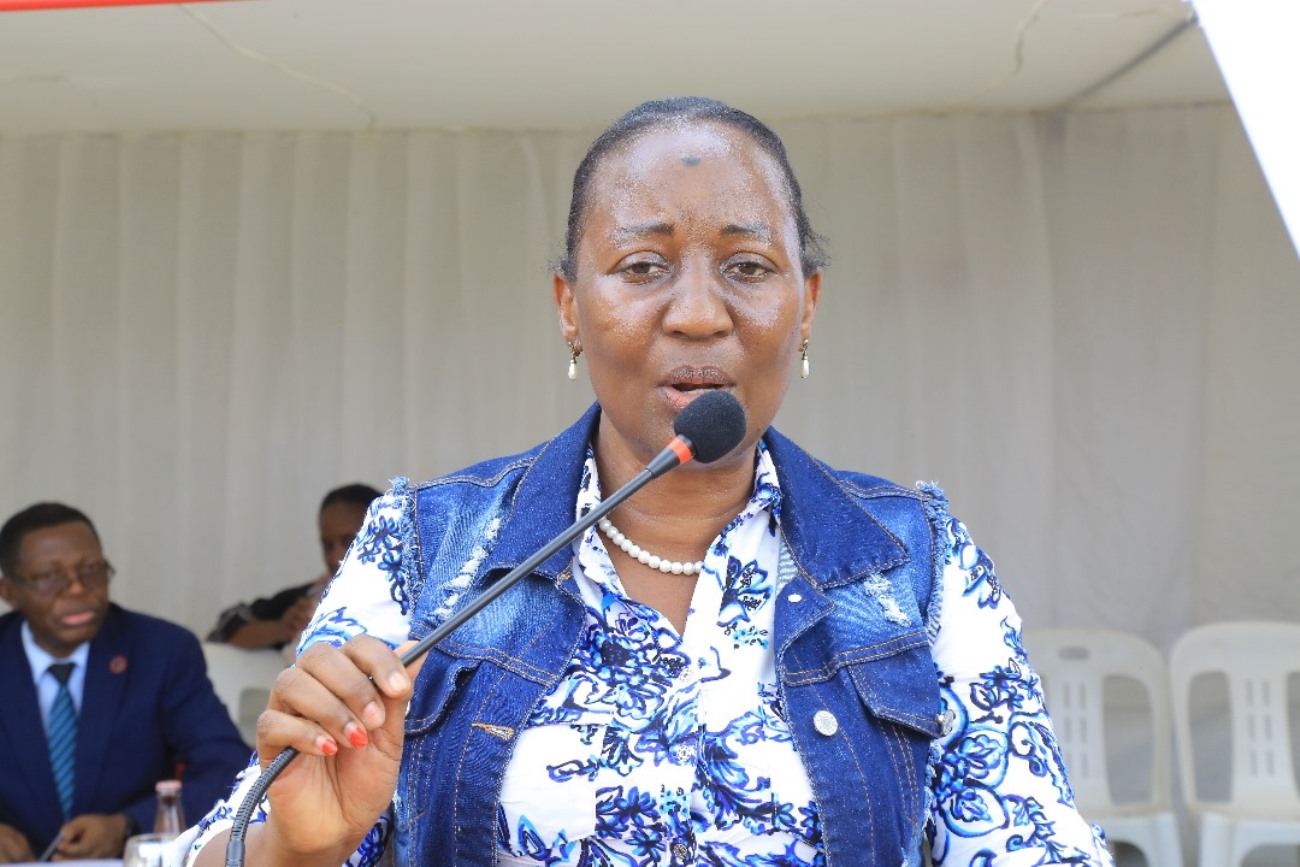
Delivering his remarks, the Deputy Vice Chancellor in charge of Academic Affairs (DVCAA), Prof. Buyinza Mukadasi, commended the CAES for its remarkable achievements in training and research.
“From my assessment, CAES has consistently excelled across its core mandates – training, research, production, and community outreach. The College has played a crucial role in advancing the agricultural sector through innovative research, high-quality academic programmes, and meaningful community engagement. These efforts have made a significant contribution to Uganda’s national development goals and the transformation of its agricultural landscape. Given its demonstrated success and strategic relevance, CAES is highly deserving of enhanced investment and funding to further expand its impact,” he stated.
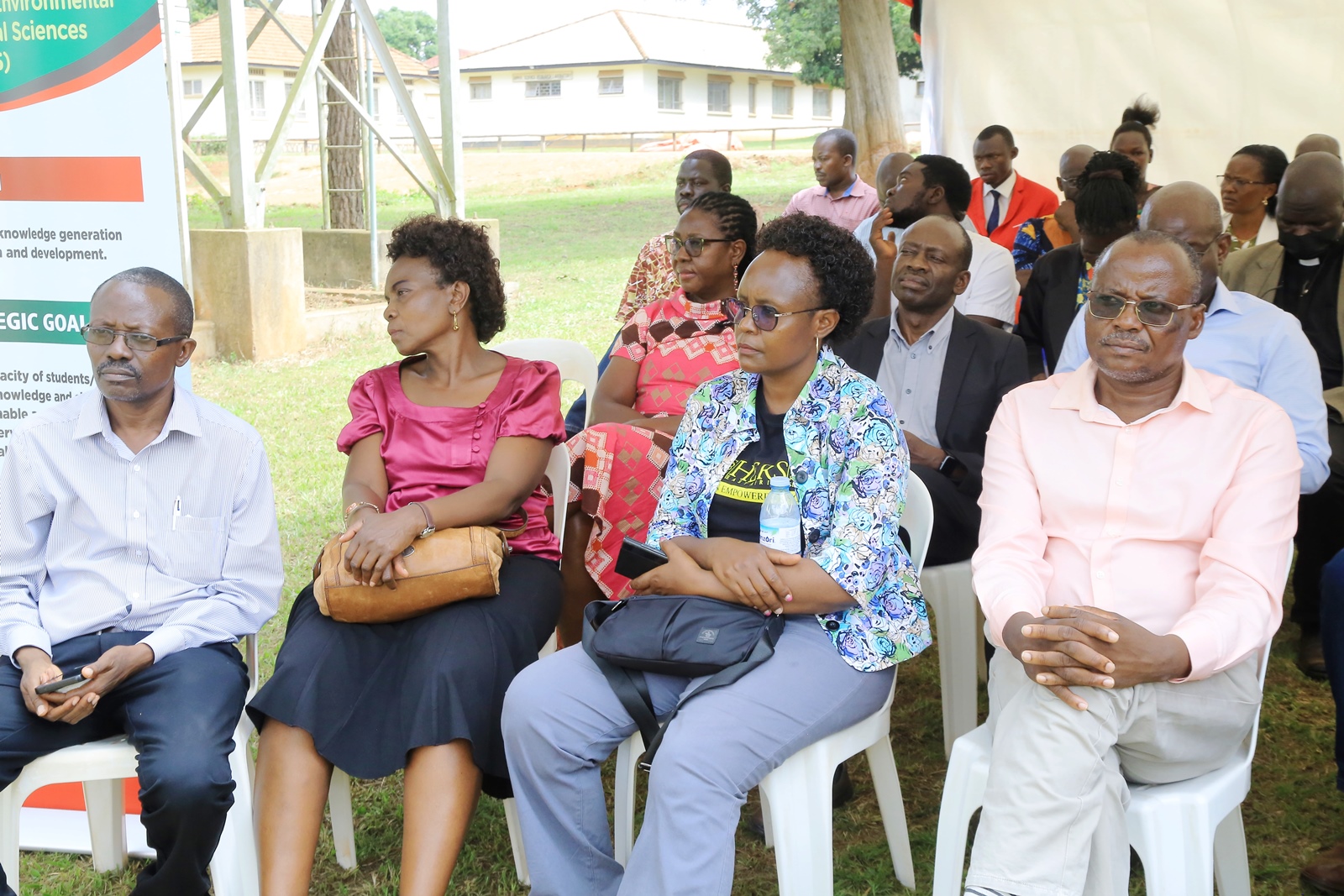
CAES Annual Awards and Staff Recognition Ceremony
The CAES Annual Awards and Staff Recognition Ceremony celebrated the outstanding achievements of dedicated teaching, administrative, and support staff. During this special event, several members of staff were acknowledged and honoured for their exceptional performance, commitment, and contributions to the College’s success.
Commenting on the significance of the awards, Prof. Buyinza praised the initiative, emphasizing that such recognition serves as a powerful motivator. He highlighted how acknowledging excellence not only boosts morale but also inspires continued dedication and fosters a culture of high performance.
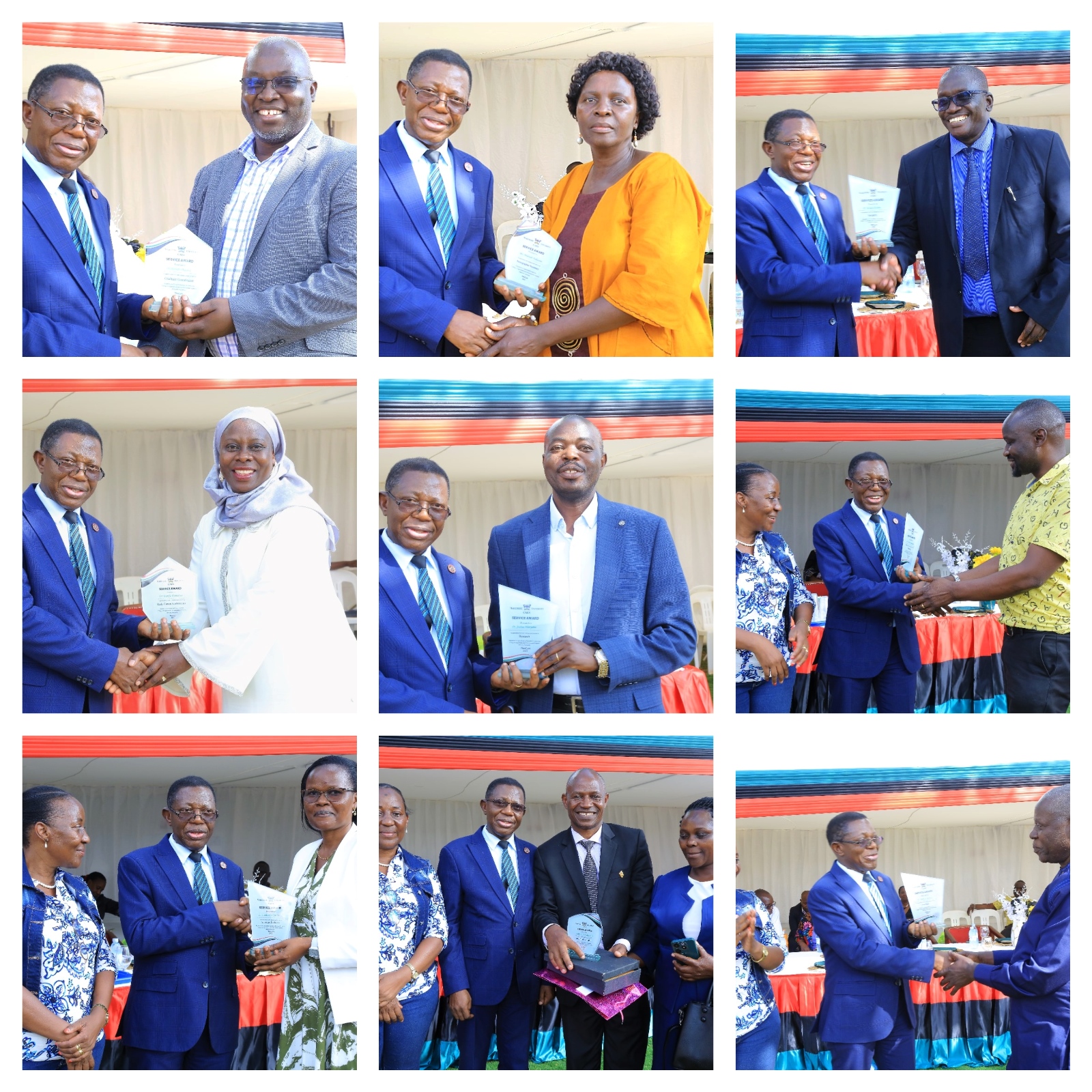
Click on the link below to access the list of staff recognized for exceptional performance.
More pictures from the event
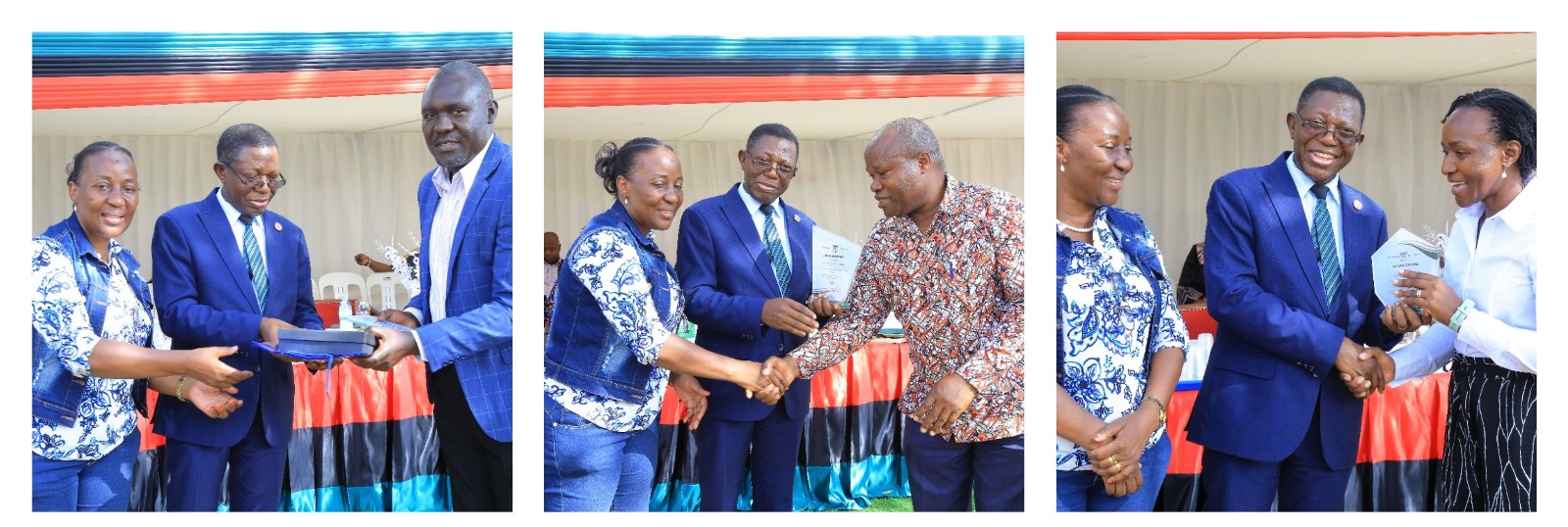
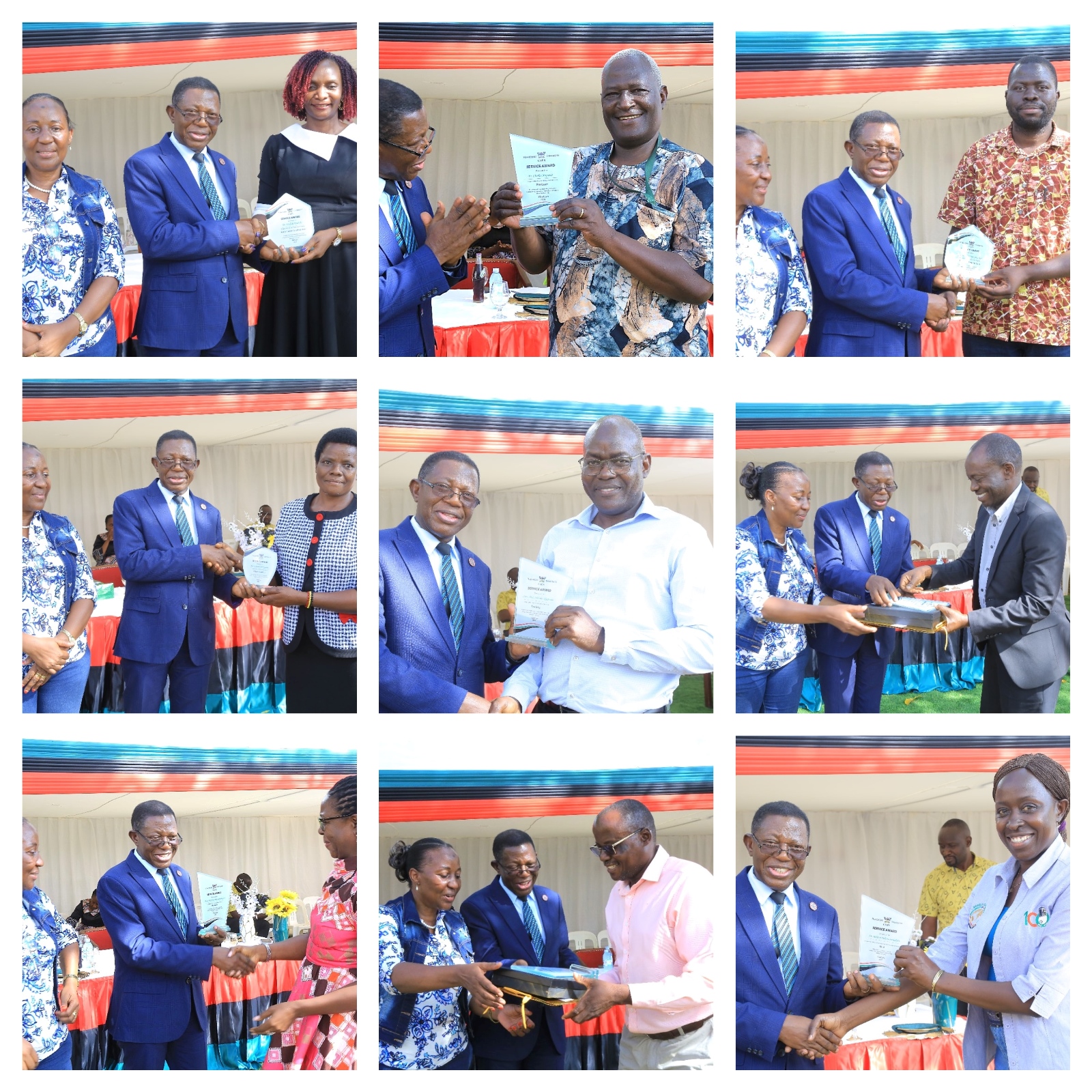
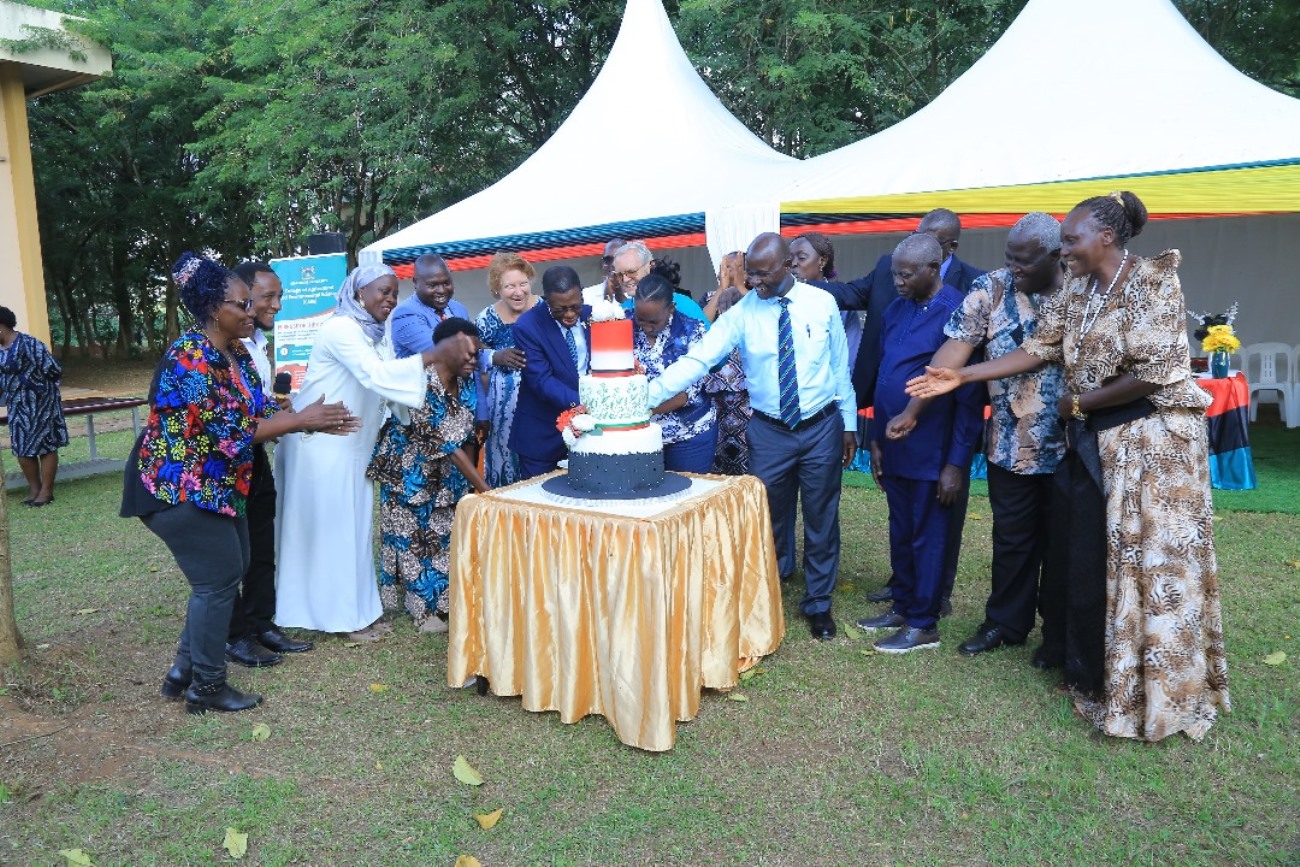
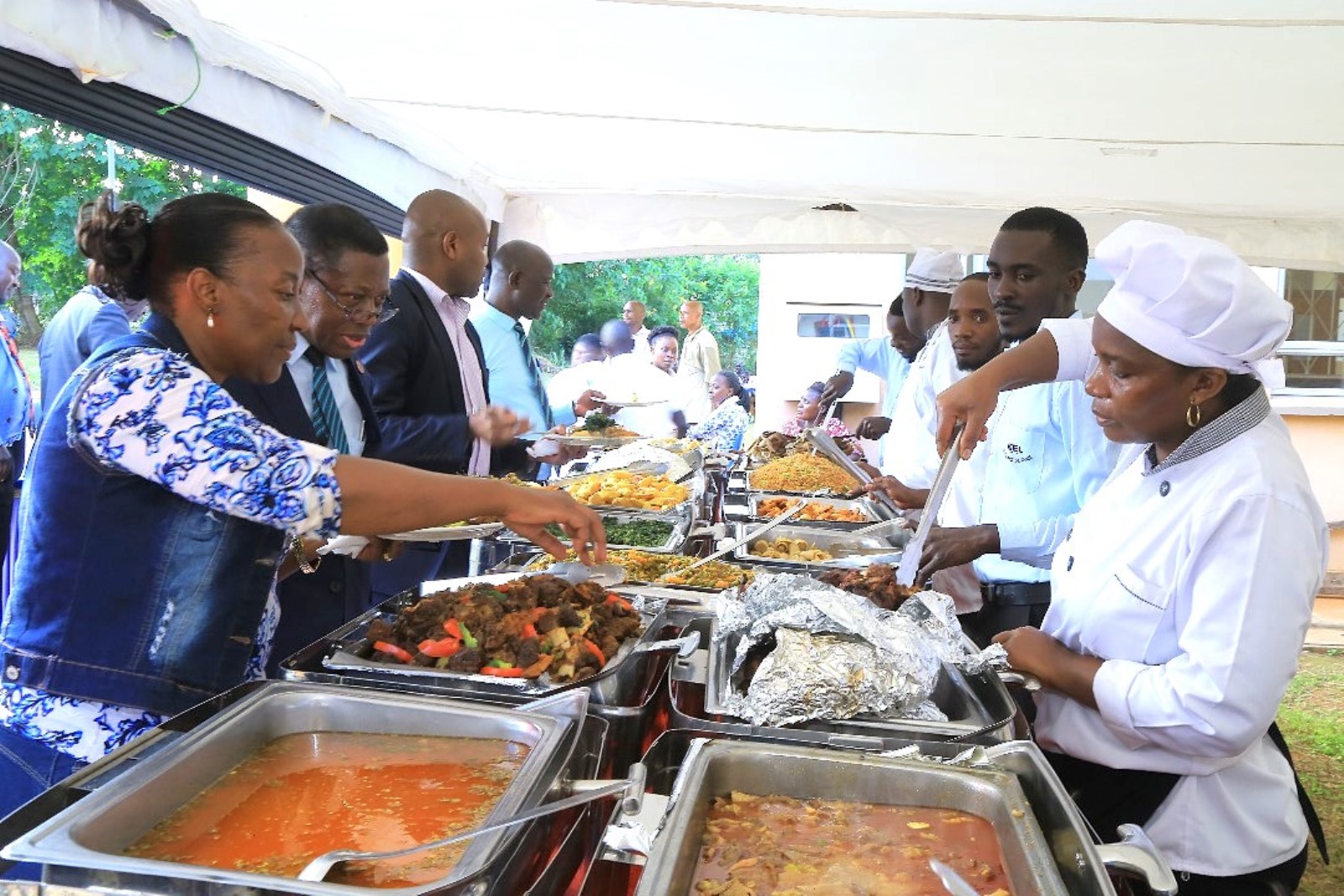
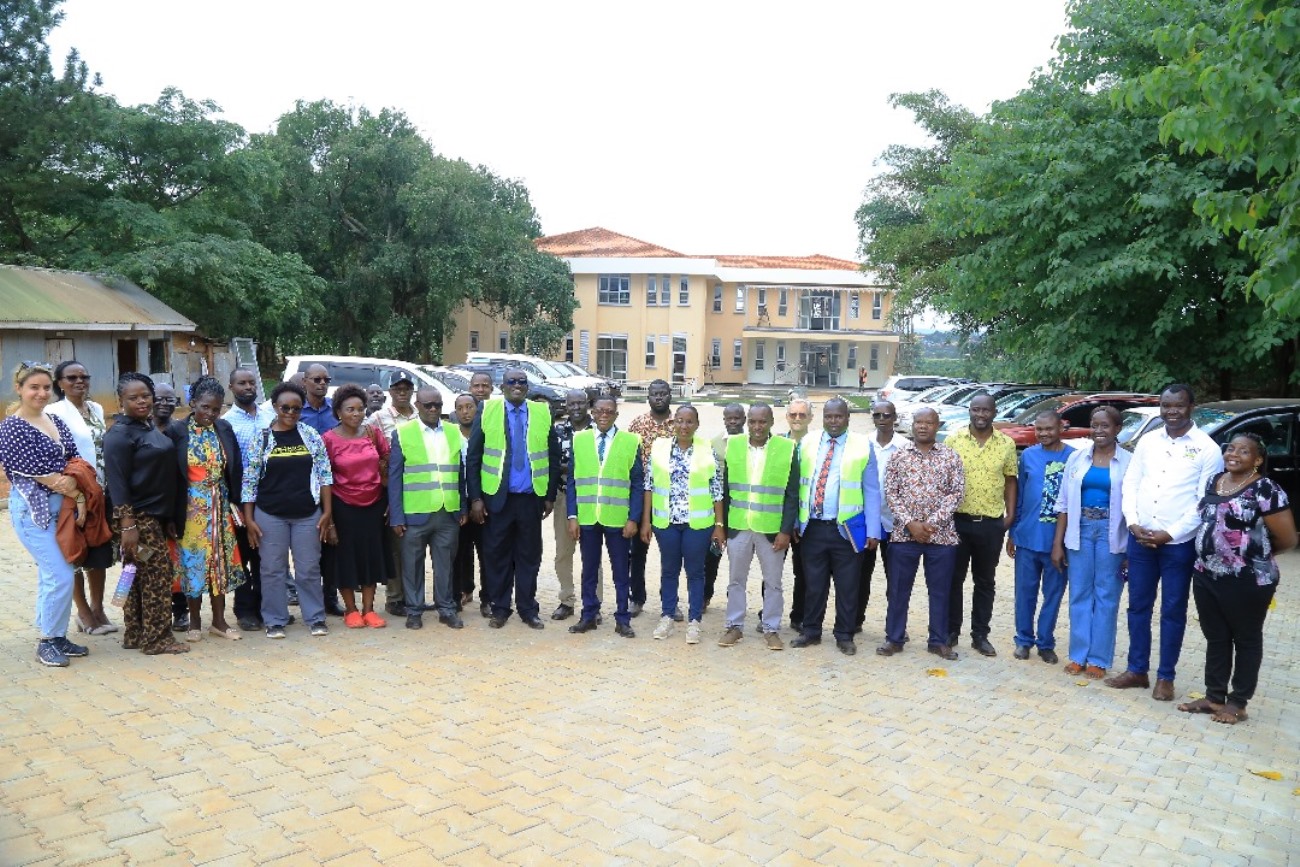
Trending
-

 General3 days ago
General3 days agoMature Age Scheme Exam Results for 2025/2026
-

 General6 days ago
General6 days agoFreshers’ Joining Instructions 2025/2026
-

 General1 week ago
General1 week agoMastercard Foundation Board pays its inaugural visit to Makerere University
-

 General1 week ago
General1 week agoUVCF Makes Case for HEAC Programme
-

 Natural Sciences2 weeks ago
Natural Sciences2 weeks agoCoNAS Participates in the 2025 National Science Week Exhibition
